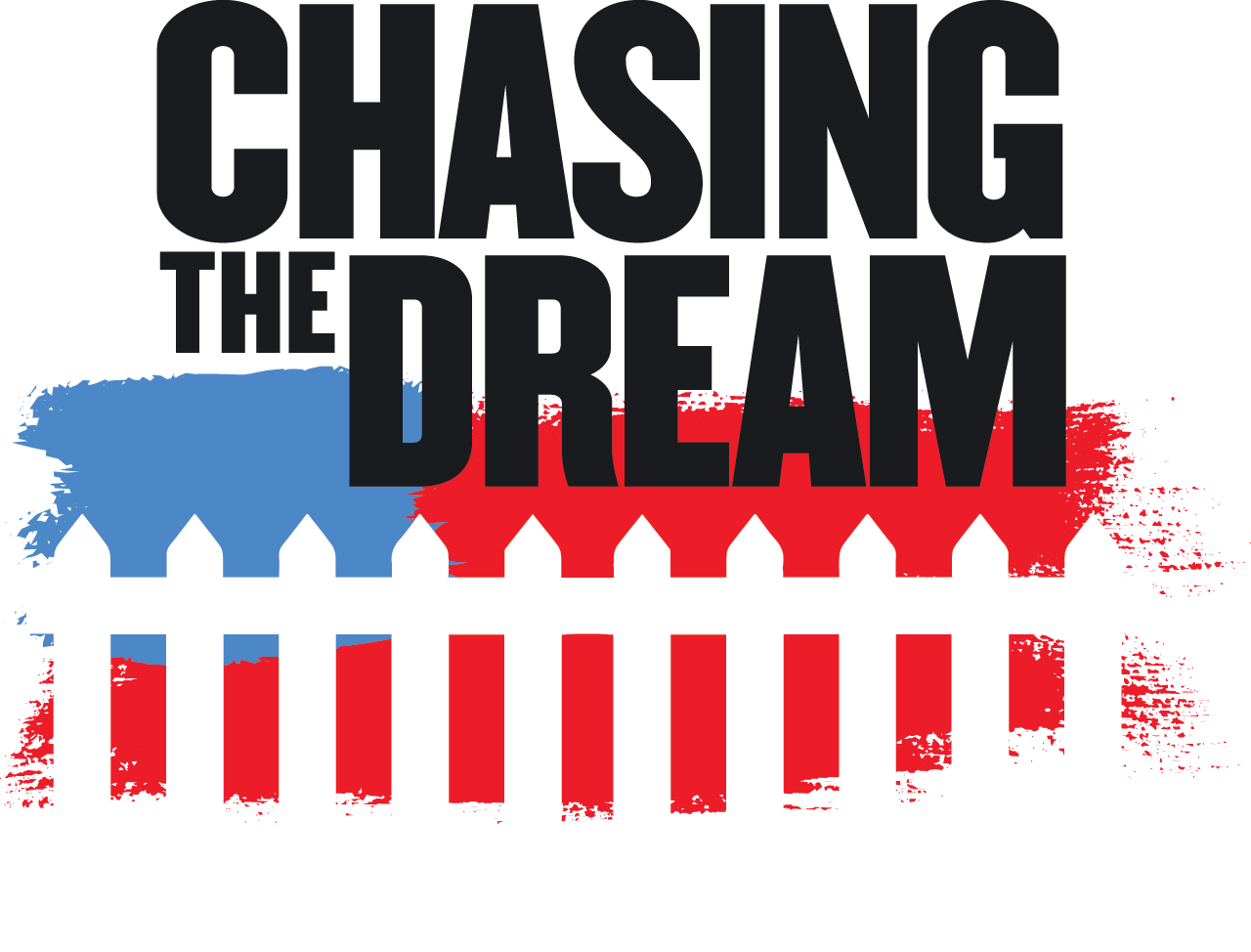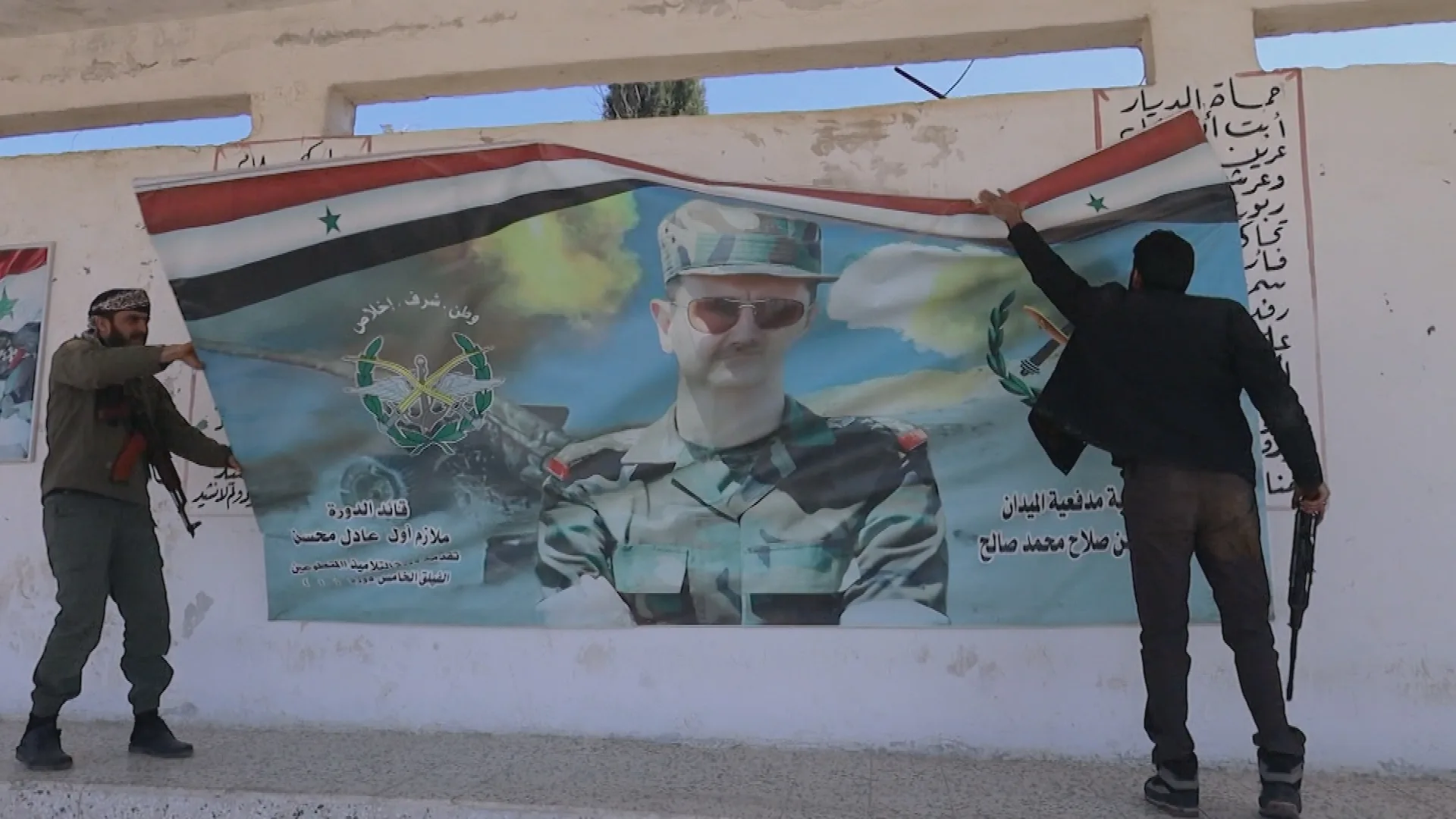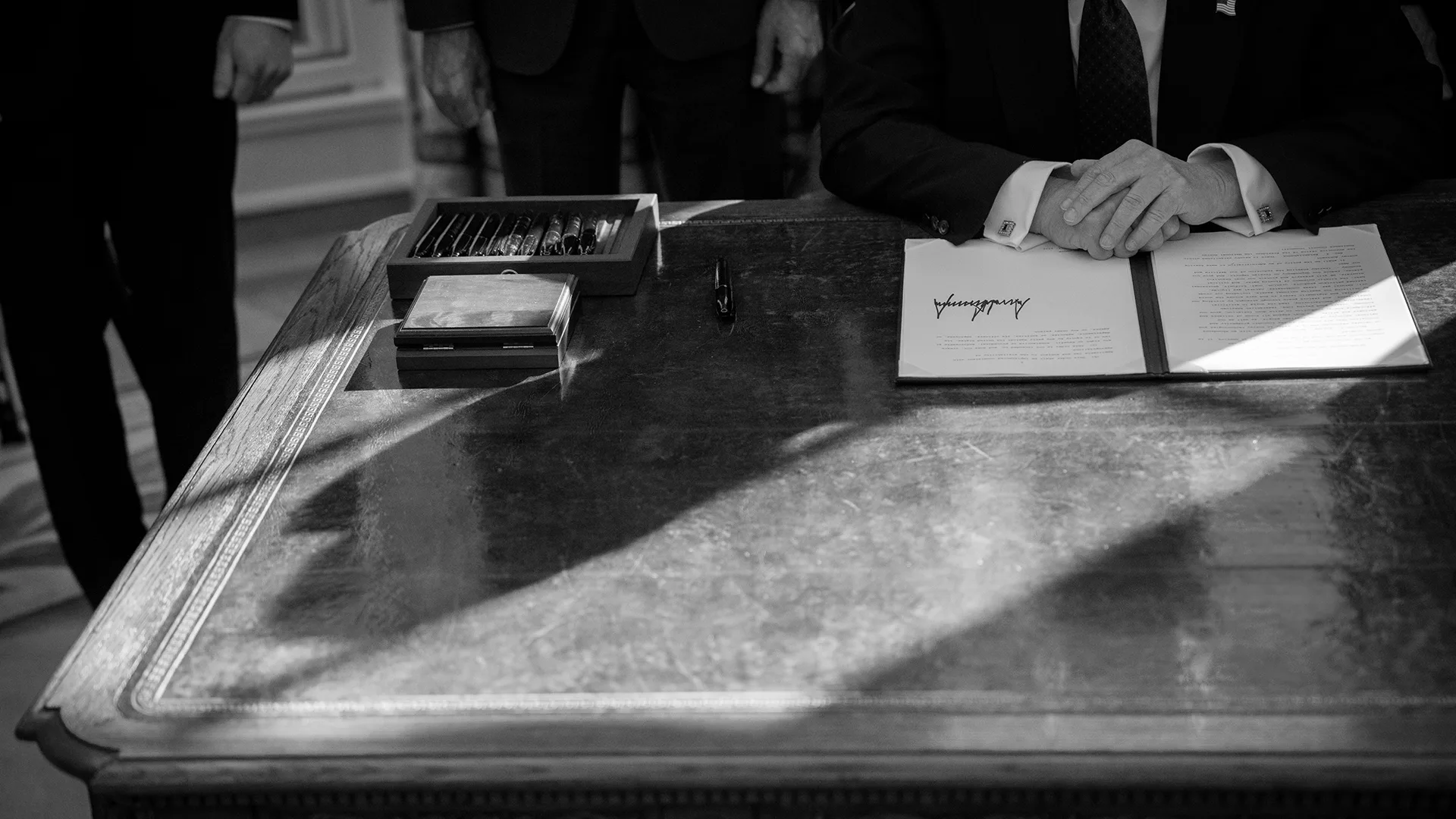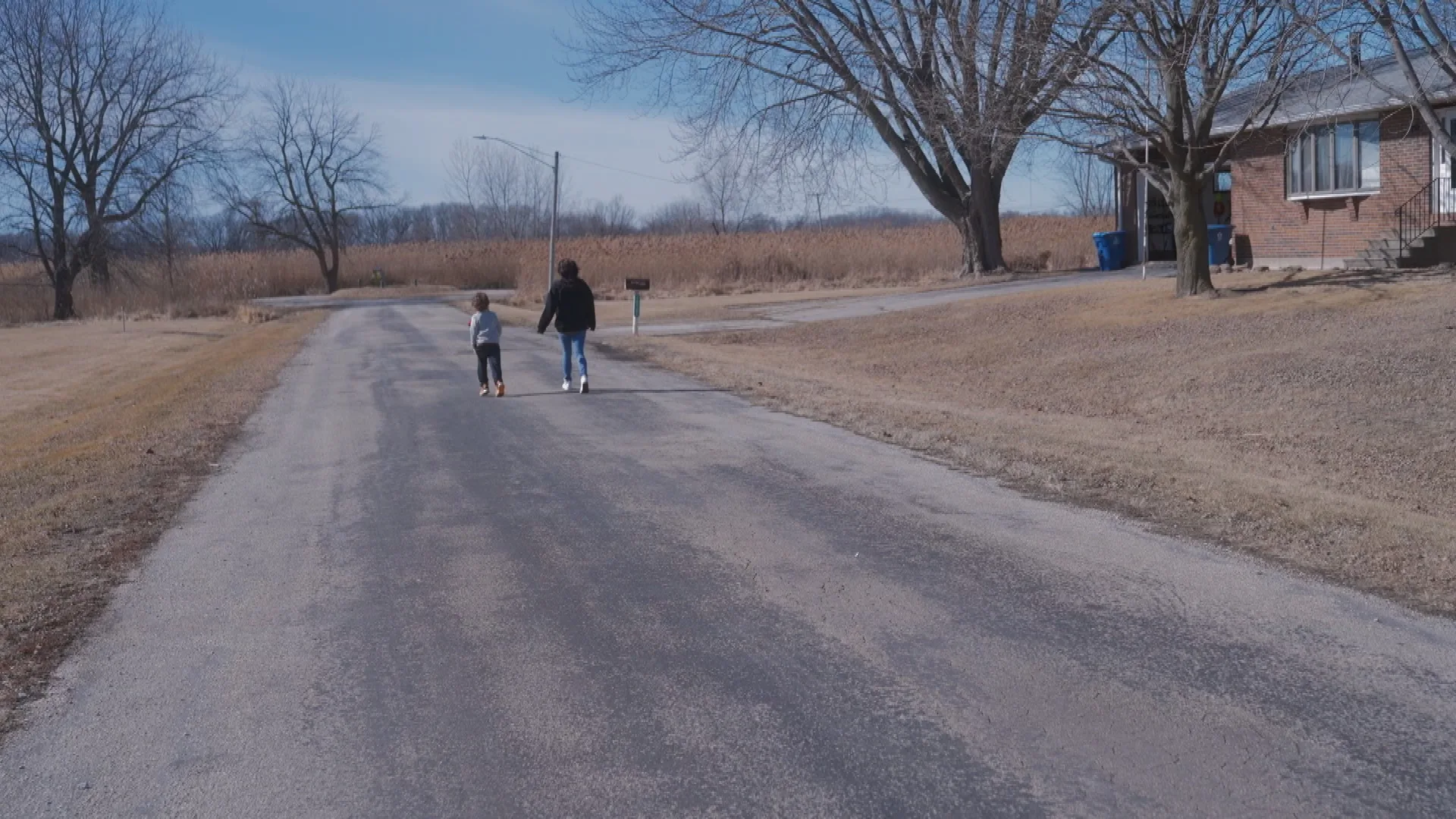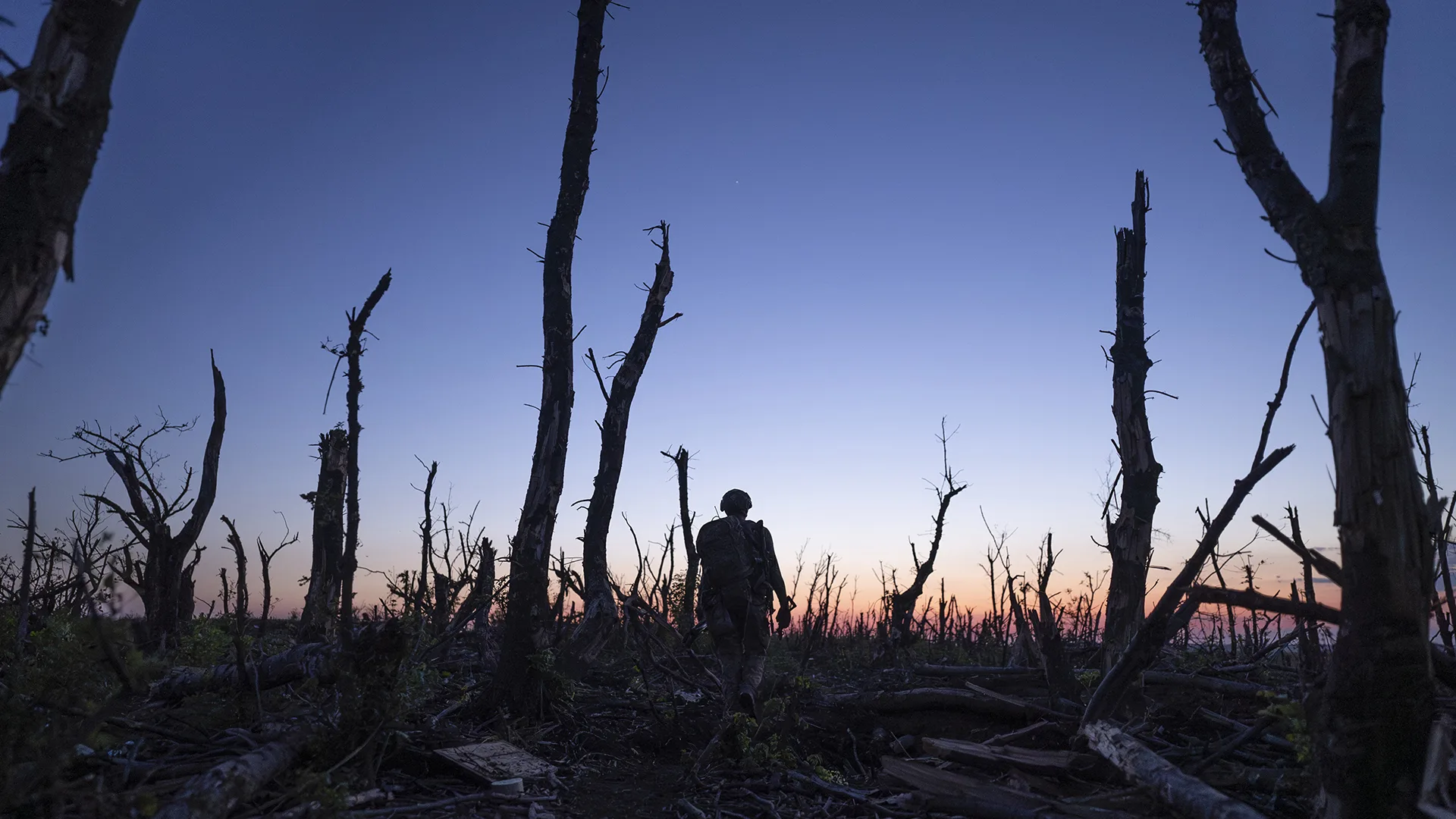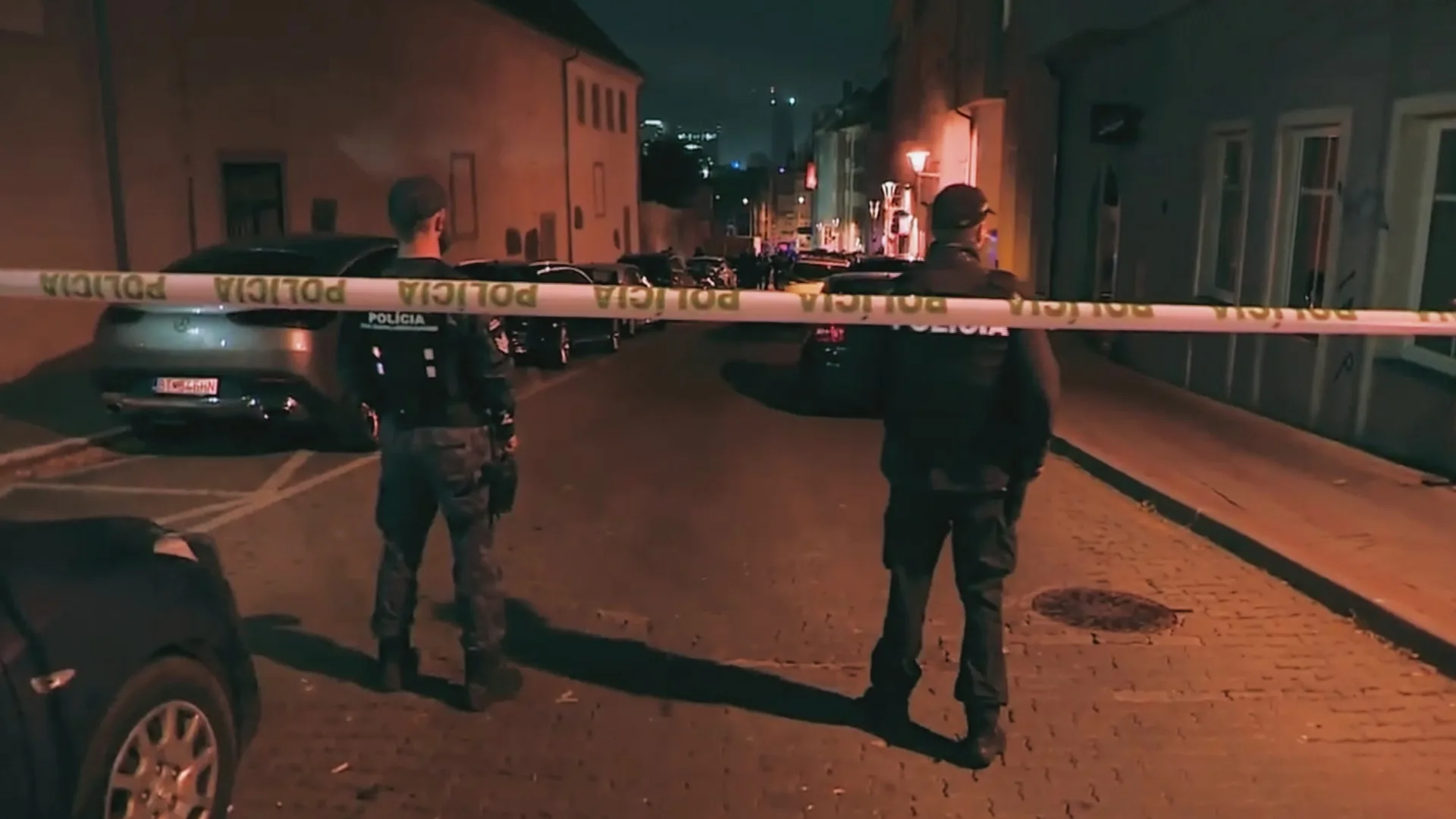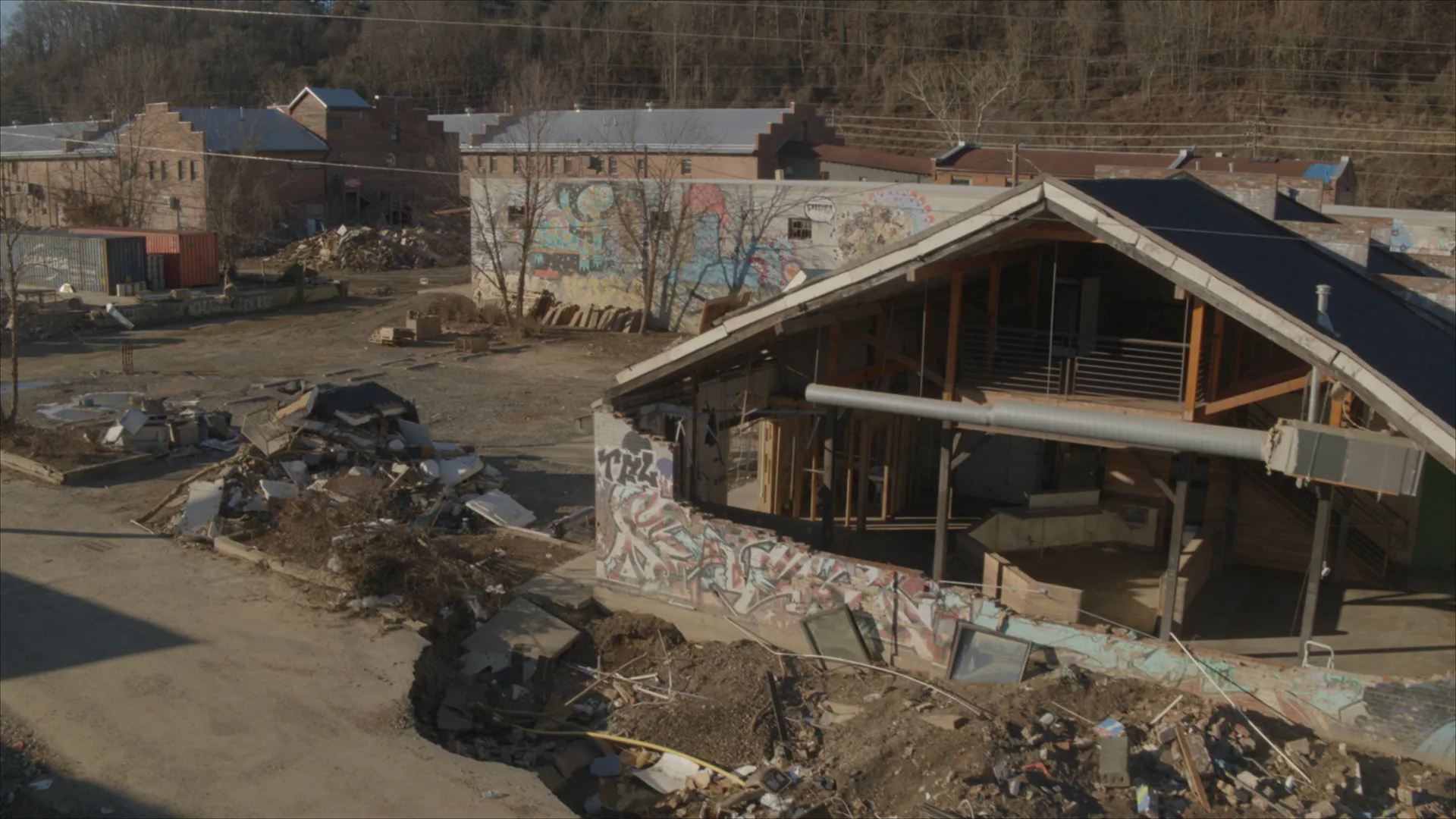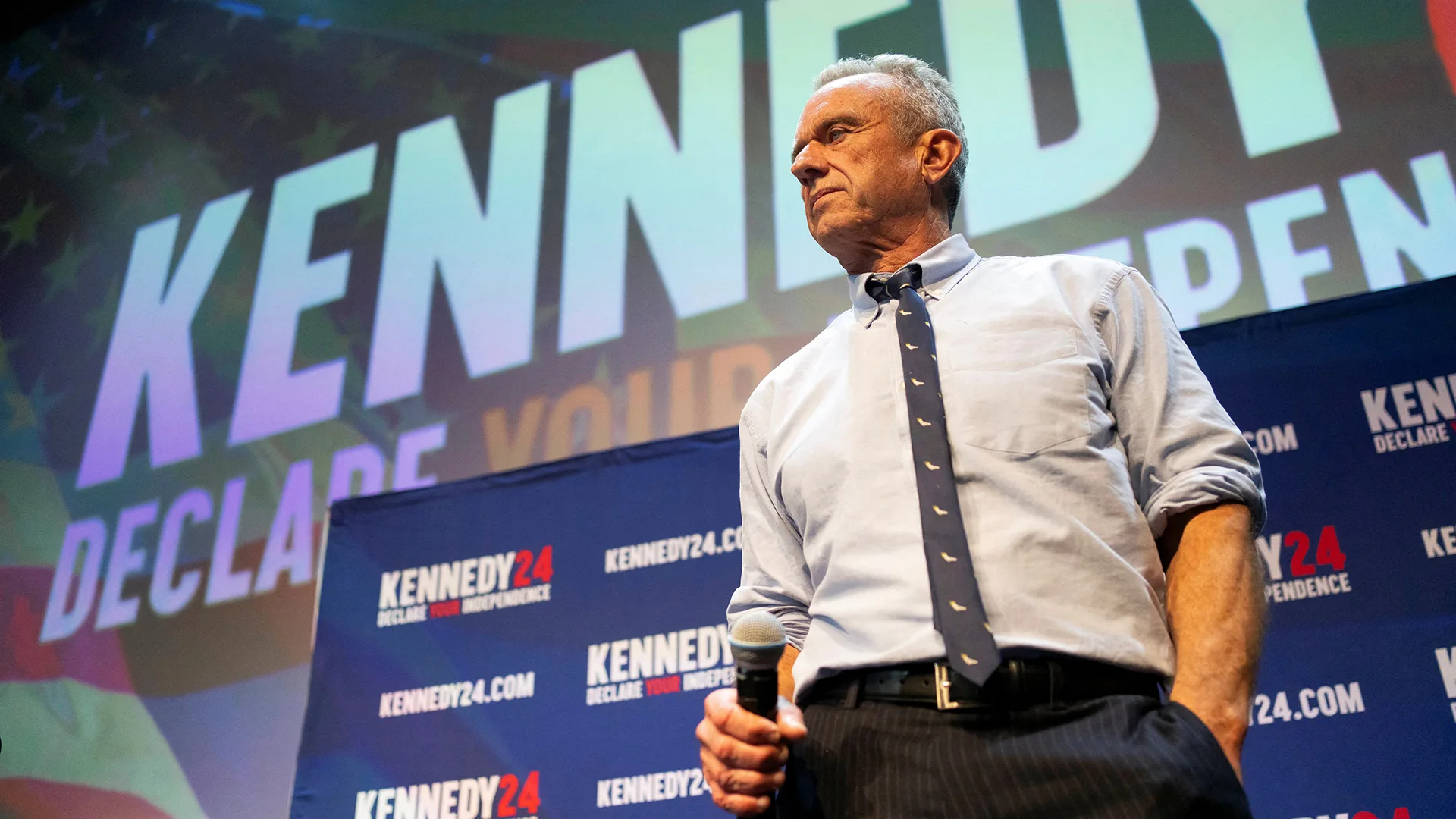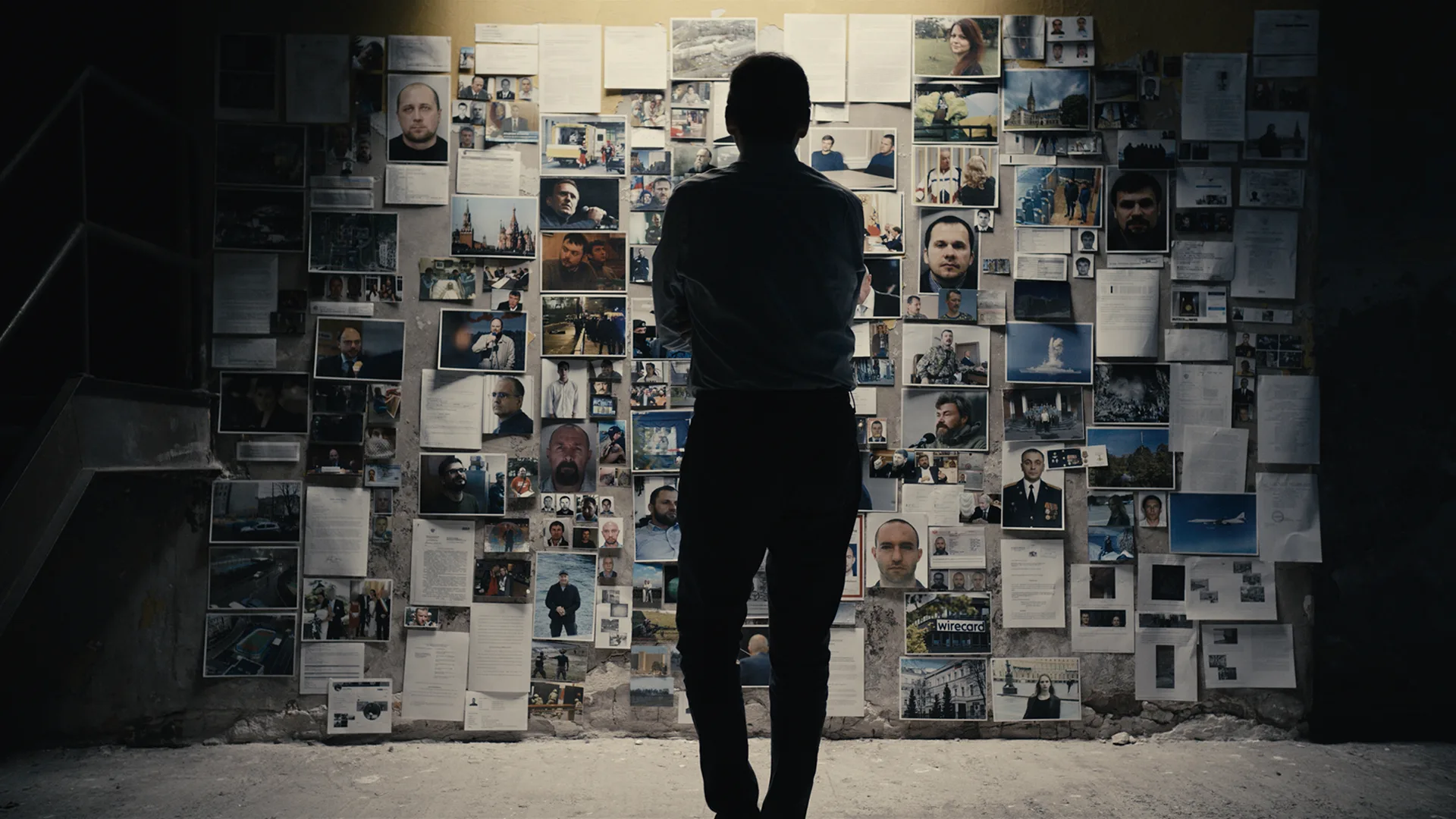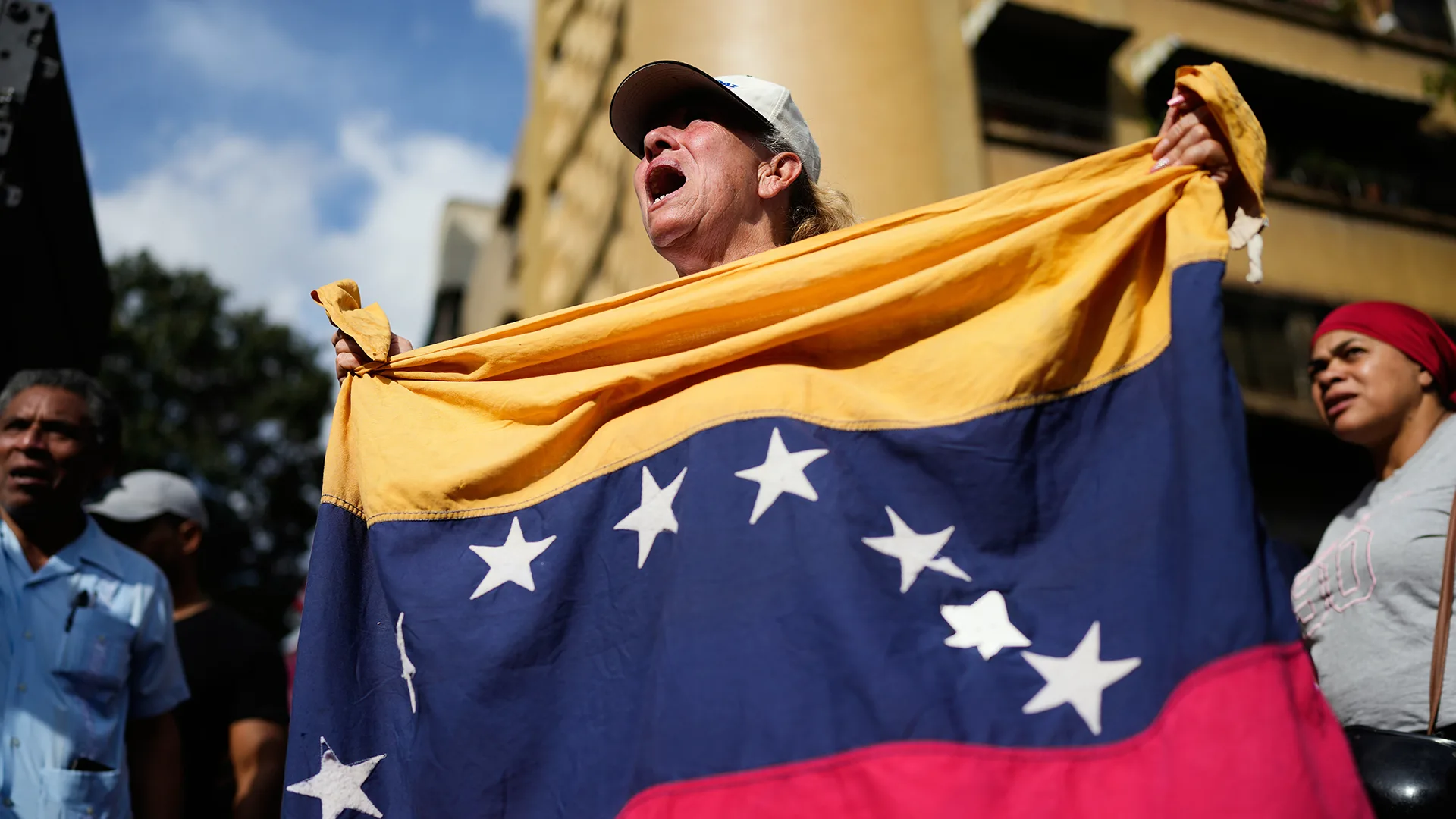American Reckoning
February 15, 2022
1h 23m
Who killed Wharlest Jackson Sr.? In investigating the unsolved 1967 murder of a local NAACP leader, "American Reckoning" reveals an untold story of the civil rights movement and Black resistance
American Reckoning
February 15, 2022
1h 23m
Share
Who killed Wharlest Jackson Sr.? In investigating the unsolved 1967 murder of a local NAACP leader, American Reckoning reveals an untold story of the civil rights movement and Black resistance.
The feature-length documentary from FRONTLINE and Retro Report, with support from Chasing the Dream, draws on rarely seen footage filmed by Ed Pincus and David Neuman more than 50 years ago in Natchez, Mississippi, and made available through the Amistad Research Center. In following the Jackson family’s search for answers, American Reckoning also taps into the groundbreaking reporting of journalist Stanley Nelson, who investigated allegations of the involvement of a Ku Klux Klan offshoot...
Directed by
Produced by
Transcript
Credits
Journalistic Standards
Support provided by:
Learn More
Most Watched
The FRONTLINE Newsletter
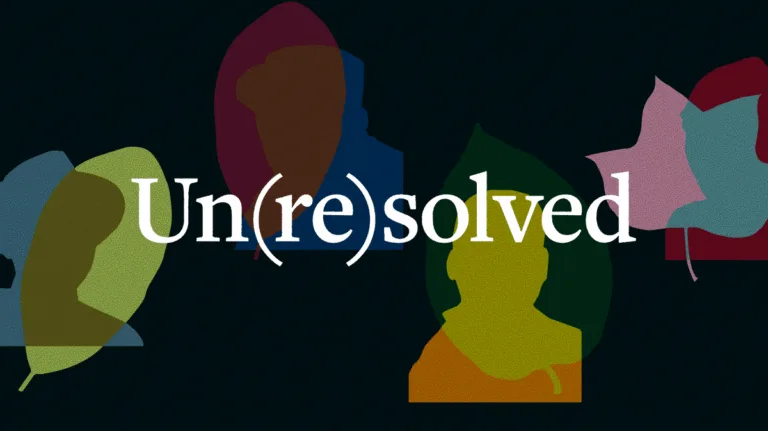
Un(re)solved
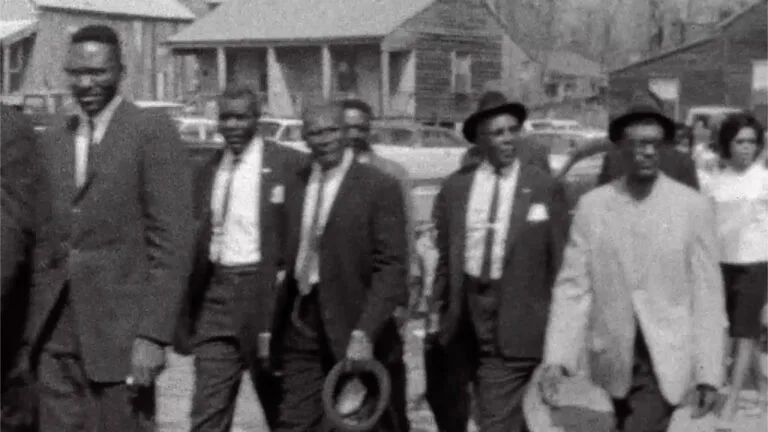
How Rarely Seen Archival Footage Brought a Civil-Rights-Era Story to Life
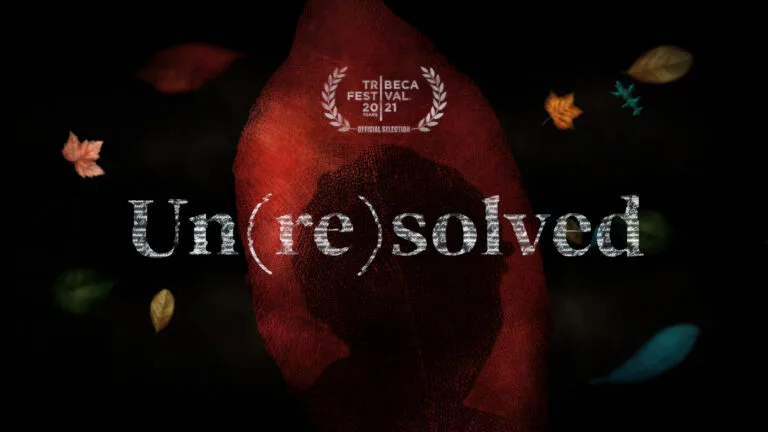
The “Un(re)solved” web interactive
Related Stories
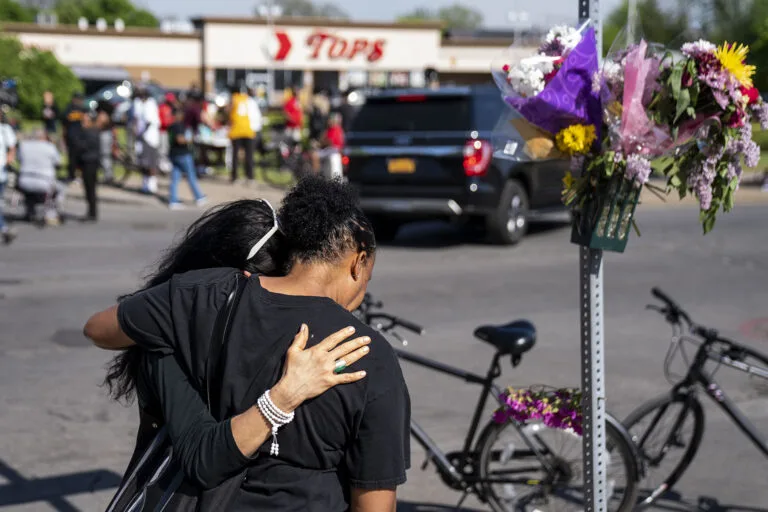
9 Documentaries That Provide Context on the Buffalo Shooting
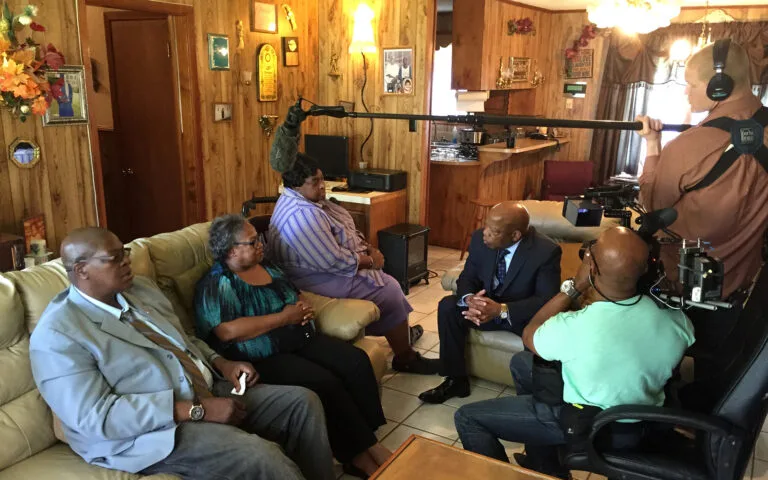
‘A Different Kind of Story’: Brad Lichtenstein and Yoruba Richen on Making ‘American Reckoning’
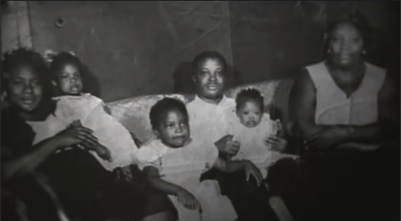
A New Job. A Racial Barrier Broken. Then, a Bombing.
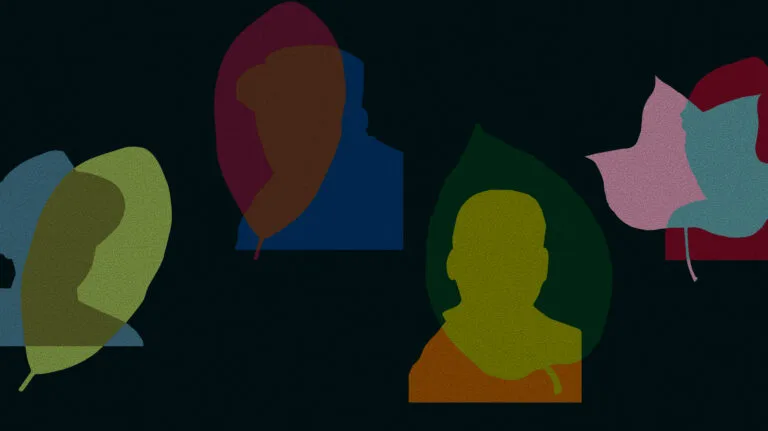
The “Un(re)solved” podcast

American Reckoning
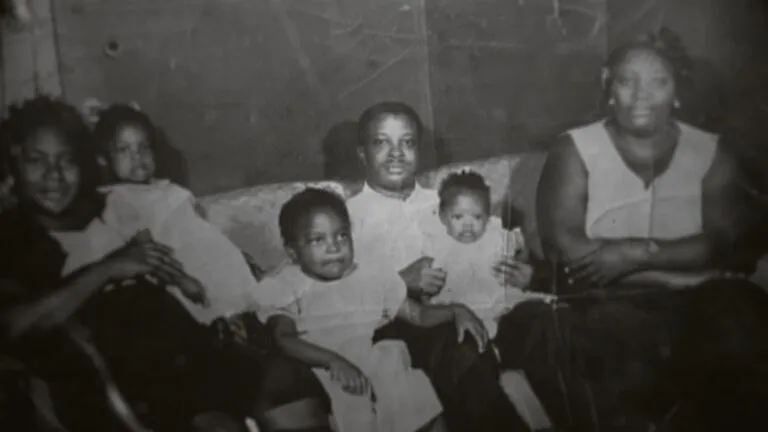
A 1967 Murder and a ‘Reckoning’ with the Truth

Introducing: Un(re)solved

Un(re)solved

The “Un(re)solved” web interactive
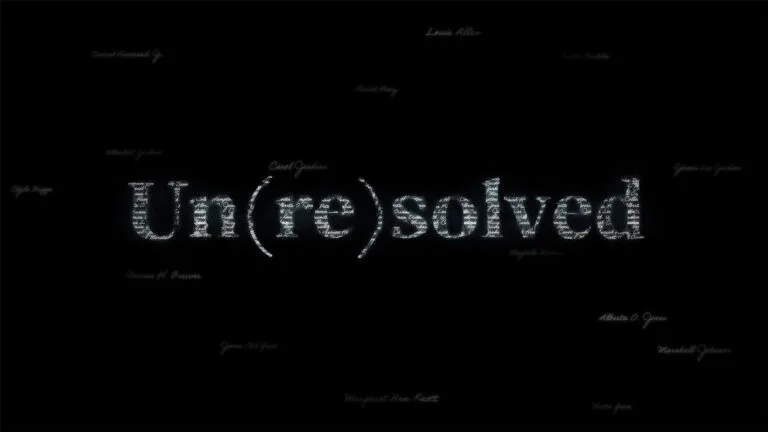
Un(re)solved
Related Stories

9 Documentaries That Provide Context on the Buffalo Shooting

‘A Different Kind of Story’: Brad Lichtenstein and Yoruba Richen on Making ‘American Reckoning’

A New Job. A Racial Barrier Broken. Then, a Bombing.

The “Un(re)solved” podcast

American Reckoning

A 1967 Murder and a ‘Reckoning’ with the Truth

Introducing: Un(re)solved

Un(re)solved

The “Un(re)solved” web interactive

Un(re)solved
This program contains mature content. Viewer discretion is advised.
1967
Natchez, Mississippi
MALE REPORTER:
Nearly 1,000 Negroes are marching silently through the center of Natchez protesting the bomb slaying Monday night of civil rights leader, father of five Wharlest Jackson.
MALE REPORTER:
Jackson, an official of the local NAACP, had left his new job last night at the Armstrong Rubber Company, presumably en route home. The cab and the truck were completely demolished.
WHARLEST JACKSON JR., Son of Wharlest Jackson Sr.:
My father looked out for the Black community in this town, and believe me, this community loved my father. He was just a god to me.
DENISE JACKSON FORD, Daughter of Wharlest Jackson Sr.:
My father sacrificed his life so that we can have a better community and you don’t have to be afraid, but will we ever get justice?
MALE SPEAKER:
They’ve been killing us here for 400 years. It’s got to come to a head. We sick and tired of that. We done built this country.
CHARLES EVERS, Field director, Mississippi NAACP:
The sooner that white people realize that we aren’t going nowhere, the better it’s going to be for all of us. Wake up, white people, before it’s too late.
WHARLEST JACKSON JR.:
This is a close-knit community here in Natchez.
Natchez
Mid 1960s
WHARLEST JACKSON JR.:
As a kid, family life with me and my sisters, the girls were kind of talkative and whatnot. I could take so much, but I want to get out and ride around the street on my bicycle, see what’s going on around town. We had horses. We had cows. We had goats. Of course, when we killed a hog or something like that, everybody in the community got food, you know what I mean? And we shared like that out here. That particular time, my father, he held three jobs trying to supply the needs of a wife with five kids.
Jackson family video
EXERLENA JACKSON, Wife of Wharlest Jackson Sr.:
He was a good man, working hard workingman.
DENISE JACKSON FORD:
My mom was a caregiver, and she was just a person that would do anything for anybody.
WHARLEST JACKSON JR.:
One of the jobs she had was at one of the largest antebellum homes in the city of Natchez, as a cook.
DEBRA JACKSON SYLVESTER, Daughter of Wharlest Jackson Sr.:
That’s all a lot of Black people did, was cook and clean up at the Stanton Hall. Living in Natchez, everything was separated. Blacks was on one side, whites was on the other side.
WHARLEST JACKSON JR.:
My mother and father tried to shield us from violence that was going on. A lot of violence was going on at that particular time.
JOHN A. HANNAH, Chairman:
This public hearing of the United States Commission on Civil Rights will now come to order.
A.B. BRITTON JR., Chmn., Mississippi Advisory Committee to the U.S. Commission on Civil Rights:
They have been cross burnings, bombings, church burnings and killings. Justice under law is not guaranteed for the Negro in Mississippi in the way that it is for the white man.
STANLEY NELSON, Editor, Concordia Sentinel, Ferriday, Louisiana:
Southwest Mississippi, Natchez and Concordia Parish in the 1960s were these sort of like this frontier region where people still live by vigilantism, and it had never been challenged. You had a huge Klan population in this area. And that’s the way things were.
LELAND BOYD, Son of Klan member Earcel Boyd:
At the time, I didn’t really understand that my daddy was in the Klan. We were kind of made to go to some of the meetings. We actually—me and my brothers—would deliver the flyers and stuff. We didn’t really understand what was going on, I guess.
ROBERT SHELTON, Imperial Wizard, United Klans of America:
I would first like to state, very emphatically, we are southerners defending our heritage and defending our beliefs.
DEBRA TAYLOR, Daughter of Klan member Sonny Taylor:
My father was James Horace Taylor Jr., but his nickname was Sonny. When everybody first met him and they didn’t know him, they’d think he was charming. You know, he could—he charmed a lot of people. But he was cruel at home and hit and tell me to tell the teacher I ran into the clothesline. He beat us all for talking to any Black. We were not allowed. He thought we should send them back to Africa or kill them off.
LELAND BOYD:
The things that set him off, probably more than anything else, was the fact that the Blacks were looking for equal rights.
FANNIE LOU HAMER, Mississippi Freedom Democratic Party:
We are sick and tired. We are going through being bit by dogs, some of ‘em being shot down, some of ‘em being beat in jail. We are not fighting back, but we going on because there’s nothing right here.
BOB MOSES, Organizer, Freedom Summer Project:
We hope to send into Mississippi this summer upwards of 1,000 teachers, ministers, lawyers and students to try and force, if possible, some real change in that state.
PAUL B. JOHNSON JR., Governor of Mississippi:
Those people have got these youngsters coming into Mississippi not knowing what the situation is. We are going to see to it that law and order is maintained, Mississippi style.
1965
MALE SPEAKER:
The National Association for the Advancement of Colored People have renamed their hearts and minds in a massive voter registration drive. Each and every one of you that have registered in the last 10 days, please stand. Let’s give them a hand. [Applause]
DEBRA JACKSON SYLVESTER:
I remember my mom and my dad was telling us they was forming NAACP. They were going to be a part of it.
EXERLENA JACKSON:
They started the NAACP back up with Charles Evers.
CHARLES EVERS:
We are here to serve notice on all of those who have been so brutal to us in the past that your day is gone.
MALE REPORTER:
Charles Evers is the NAACP field director in Mississippi. The man who had the job before him was his brother Medgar, killed in an ambush in Mississippi.
CHARLES EVERS, Former field director, Mississippi NAACP:
After they shot Medgar, I said, “I’m going to Mississippi and kill every cracker until they kill me.” And my wife said, “No, Charles, please.” I said, “Yes, I am.” At that time, you could carry guns, like I always do. You carry guns.
BRAD LICHTENSTEIN, Producer:
Do you have a gun right now?
CHARLES EVERS:
Yeah. Oh, sure. I keep a gun. I always keep a gun.
BRAD LICHTENSTEIN:
Can you show me?
CHARLES EVERS:
Sure. No secret.
I brought down my thugs from Chicago. We were going to start killing white people. I went to Medgar’s office here on Lynch Street, where I finally took over. And I sat there and something just came and said, “Charles, not that way. Do it the way Medgar would’ve done it.” And that’s when I went out and helped Jessie Bernard and Wharlest Jackson and George Metcalfe to organize the NAACP branch in Natchez.
George Metcalfe
President, Natchez NAACP
Jessie Bernard Williams
Secretary, Natchez NAACP
Wharlest Jackson Sr.
Treasurer, Natchez NAACP
CHARLES EVERS:
Metcalfe took on the presidency and Jessie took on the office management. Wharlest Jackson, he was treasurer. And they became the leaders.
CHERYL GLOVER, Niece of Wharlest Jackson Sr.:
George Metcalfe and Uncle Wharlest were very close. They would come in and get around the dining room table and start these discussions.
CHARLES EVERS:
George was loud, and Wharlest was quiet, but they both were forceful.
DEBRA JACKSON SYLVESTER:
Tensions started getting really high in Natchez when the NAACP started growing.
CHERYL GLOVER:
You would actually have Klansman show up and stand outside of their meeting. One time it was nightfall. And following the meeting we were driving, and we were on a dirt road. All of a sudden there were bright lights. Mr. Metcalfe said, “Don’t turn around. Don’t turn around. Get on the floor.” The gentleman that was in the front seat pulled out a gun. Nobody ever turned around to look in the back, but you could see these beaming high-beam lights. Uncle Wharlest kept driving. Finally, the truck turned off. Not a word was said.
MALE SPEAKER:
Aug. 13, 1965. For the protection of our Negro citizens against the Ku Klux Klan racist group in the Negro area. As of now, we do not have protection from our local law enforcement, the sheriff nor the chief of police.
PROF. AKINYELE UMOJA, Author, We Will Shoot Back:
We used to have a saying, “The police and the Klan go hand-in-hand.” And that was real clear in Mississippi during that time. It was known that there were Klan members in the Natchez police department. Local Black men were tired of it.
MALE SPEAKER:
The Negro Protection Organization of Adams County.
MALE VOICE:
Little louder. Take the time to read it.
MALE SPEAKER:
Rule one: that is to not break the law but to make sure the law is enforced upon all citizens. Do not attack first at any time.
JAMES JACKSON, President, Deacons for Defense:
The real reason for this is not to stir up trouble, not to start trouble, it’s to prevent it. You understand me? You know the risk that we finna to take, right? Get out now because once you’re in, there ain’t no out, see?
NATCHEZ DEACON 1:
Now is the time, right now. Huh? Who?
MALE VOICE:
It’s Wharlest Jackson.
WHARLEST JACKSON SR.:
How y’all doing?
MALE VOICE:
How you doing?
WHARLEST JACKSON SR.:
All right.
WHARLEST JACKSON JR.:
My father was a very courageous man. He was a decorated Korean War veteran. We weren’t a family of fear.
MALE VOICE:
Where you work?
WHARLEST JACKSON SR.:
I work at Armstrong.
MALE VOICE:
Where you live? What section of town you live in?
WHARLEST JACKSON SR.:
Right on North Union.
MALE VOICE:
North Union?
WHARLEST JACKSON SR.:
Yeah.
NATCHEZ DEACON 2:
So we might make your house a communication house. We got to have some communication home, you know, residence? So, we like for you to attend our meeting in a night that you’re off, you understand?
Now, who want to be first man? Left hand, both knees on the floor. Good. Repeat after me. I do.
NATCHEZ DEACON 3:
I do.
NATCHEZ DEACON 2:
Solemnly swear.
NATCHEZ DEACON 4:
Solemnly swear.
NATCHEZ DEACON 2:
Upon.
NATCHEZ DEACON 4:
Upon.
NATCHEZ DEACON 2:
My own free will.
NATCHEZ DEACON 3:
My own free will.
NATCHEZ DEACON 2:
Until the end of my life.
NATCHEZ DEACON 4:
Until the end of my life.
NATCHEZ DEACON 2:
Repeat your name.
WHARLEST JACKSON SR.:
Wharlest Jackson.
NATCHEZ DEACON 2:
Wharlest Jackson. I do solemn swear.
WHARLEST JACKSON SR.:
I do solemn swear.
NATCHEZ DEACON 2:
Upon.
WHARLEST JACKSON SR.:
Upon.
NATCHEZ DEACON 2:
My own free will.
WHARLEST JACKSON SR.:
My own free will.
NATCHEZ DEACON 2:
According.
WHARLEST JACKSON SR.:
According.
NATCHEZ DEACON 2:
That I will not.
WHARLEST JACKSON SR.:
That I will not.
NATCHEZ DEACON 2:
Reveal.
WHARLEST JACKSON SR.:
Reveal.
NATCHEZ DEACON 2:
Or invade.
WHARLEST JACKSON SR.:
Or invade.
FEMALE SPEAKER:
To the school board for the Natchez-Adams County Public Schools, the undersigned hereby petition your board to initiate racial desegregation of the public schools under your jurisdiction and control.
STANLEY NELSON:
By late August, the NAACP filed a lawsuit against the schools for desegregation.
FEMALE SPEAKER:
We would further request that the names of these adults signed this petition not be made public in order to protect the signers from possible reprisals and harassment.
TONY BYRNE, Former Natchez alderman:
There was a fear and a resentment of desegregation of the schools at the time in the white community. There was just wild rumors of what was going to happen if the Blacks took over.
DEBRA TAYLOR:
My dad and the Klan didn’t want Black people in our schools, offices, anything. They wanted to get it stopped at all costs.
August 27, 1965
MALE REPORTER:
George Metcalfe, president of the Natchez chapter of the NAACP, was critically injured in Natchez this afternoon when dynamite hidden beneath the hood of his car exploded when he turned on the ignition.
WHARLEST JACKSON JR.:
When the bomb went off under the hood of his vehicle, a lot of that metal and brass just went back into his face.
AKINYELE UMOJA:
After the bombing of Metcalfe’s car, the Black community explodes.
JESSIE BERNARD WILLIAMS, Secretary, Natchez NAACP:
Yeah. Get that phone, somebody! What is happening is that the people are arming themselves, true, but tonight the people just want to serve notice on the city, that’s all. We just gonna let these people know we’re tired. We have mass meeting tonight, Friday, Aug. 27, 1965. Place: Ninth and Catherine. Time: 6:30 p.m. Purpose: protest Ku Klux Klan violence.
GIRL:
[Sings] You can kill my body but not my soul.
CROWD [singing]:
God’s gonna trouble the water.
MALE VOICE:
Are you ready?
CROWD [in unison]:
Yeah!
MALE VOICE:
Let Natchez know you’re ready!
CROWD [in unison]:
Yeah!
CHARLES EVERS:
George [Metcalfe] is not in good condition. As we have told them many a time, they can destroy a man, but they cannot destroy this movement. Didn’t do a thing but made us more determined. We’re more determined than ever that we’re going to rid Natchez of all of the racists, the bigots, the Ku Klux Klan, and you’re going to do your job as police officers and as mayor of our city or else. Now you figure out what “else” is. [Applause]
JAMES JACKSON:
I’m going to stay here, man, and do whatever I can for freedom, if I have to die for it, man.
SER CLIFFORD BOXLEY, Natchez activist:
After George Metcalfe is car-bombed, enter James Jackson, who is the cool street dude, dark glasses.
JAMES JACKSON:
Hey, man.
SER CLIFFORD BOXLEY:
Tall, dark and handsome.
MALE VOICE:
Who’s your favorite movie star?
JAMES JACKSON:
Hey, baby. Marlon Brando.
AKINYELE UMOJA:
James Jackson was a local barber. Very charismatic, always with his gun to his side.
SER CLIFFORD BOXLEY:
The community’s angry. The whole idea of nonviolence is out the window.
MALE VOICE:
The quickest way to freedom is to meet violence with violence.
MALE VOICE:
Violence with violence! Black mamba.
MALE VOICE:
This is a powder keg, man, and tonight, tonight, the fuse is going to be lit.
SER CLIFFORD BOXLEY:
On the day after that bomb explosion of George, five young men made a trip to Bogalusa, Louisiana. They had heard about the Deacons.
AKINYELE UMOJA:
The Deacons first started in Louisiana. They clashed with the police as they openly practiced armed self-defense. It got national attention.
RICHARD “DIP” LEWIS, Founding member, Deacons for Defense:
We decide to drive to Bogalusa and ask them how they got organized. We got there about maybe about 1:00 that night. They sent us down a back road to find them. We was surrounded by Blacks like I don’t know what. Shotgun all in my nose, like that, through the door. James Jackson, he got out of the car and went with them, but they came back about an hour or so later. They gave us guns. Then we came on back here.
JACK HELM, Louisiana Klan leader:
This is your America! This is your land! We are not going to be run out of our own country by a bunch of cannibals and savages, and we’re not going to let the Defense—what’s the name of those n——? [Laughter] We’re not going to let them take over our country!
AKINYELE UMOJA:
Natchez and the other side of the Mississippi River probably had the largest Klan group per capita in the United States. But you know, they were afraid of the Deacons. They didn’t know what they were dealing with.
RICHARD “DIP” LEWIS:
See, they thought it was 500 of us. Starting off, wasn’t but five of us.
E.L. McDANIEL, Grand Dragon, United Klans of America:
These Deacons for Defense, we know who they are and I’m sure that they know who I am. One thing I can say for every white man that dies at the hand of these filthy mobs, there are going to be hundreds of those no-good African jungle bunnies that’s going to go down in the streets.
LELAND BOYD:
I had a lot of fear. I was expecting to have another Civil War.
RICHARD “DIP” LEWIS:
Ku Klux Klan used to take pictures of us. Thought we was gonna run.
SER CLIFFORD BOXLEY:
The Klan had signs saying, “The Klan is watching you.” And they would have signs saying, “The Deacons are watching you.”
JAMES JACKSON:
Now I mean, I’m as afraid as the next man. I’m scared, man, you know? But you got a time set to die. Like Metcalfe’s car got blowed all to pieces, man. He’s still alive. So you don’t die until your time comes. By taking a risk, man, that don’t mean that you going to get hurt. You know what I mean?
OTIS FLEMING, Deacons for Defense:
There’s not many of us, but if we’re together, just like a fist, man, just like a fist, we can be stronger than we can if you just come out open like this, you know?
AKINYELE UMOJA:
You began to see the Deacons out in front protecting demonstrations, protecting Black leaders, protecting the community.
TONY BYRNE:
The white people were concerned when they saw the Black people carrying guns. They knew about the so-called Deacons for Defense. It was, I’m sure, very frightening to a whole lot of them.
DEBRA JACKSON SYLVESTER:
As a little girl participating in the marches, just seeing how they were throwing stuff at us, calling us n——. It was just ugly.
RICHARD “DIP” LEWIS:
If they were out there marching and some white boy wanted to break in there to jump on somebody, we grabbed them and stomped them to the ground.
AKINYELE UMOJA:
With the Deacons you had a rhetoric that was different from previous rhetoric you would hear from Martin Luther King and others in the nonviolent aspect of the movement.
JAMES JACKSON:
I believe, just like Martin Luther King, everybody else, I believe in nonviolence, you know? On the other hand, I believe that our people should stop getting killed.
AKINYELE UMOJA, Georgia State University:
Self-defense is a longer tradition that goes on in Black communities from our inception, right?
SER CLIFFORD BOXLEY:
I go to a meeting of the Deacons for Defense and I observed the fact that they needed more weapons, so I invite Dip here, along with a spokesperson for the Deacons named James Stokes, to California.
JAMES STOKES, Spokesman, Deacons for Defense:
Boxley introduced me to a different organization.
RICHARD “DIP” LEWIS:
We told them about what was going on down here in Natchez, and they gave us guns. And they gave us money.
SER CLIFFORD BOXLEY:
When they came back they had the capacity to hit the street immediately to checkmate the Klan.
The Black community, they are out by the hundreds to demonstrate and protest, and they have these demands that they’re giving to the city council and the mayor.
CHARLES EVERS:
They’re very simple. We have 12 of them. End police brutality. Denounce the Ku Klux Klan. Desegregate all public facilities and public accommodations. Hire Negroes in all the downtown stores. We’re going to continue to protest until we get some of our requests.
This is what we want. We want to know, what can you do about them? That’s what I thought.
FEMALE SPEAKER:
I think one important area that we’re forgetting and that’s the equal distribution of tax funds, which are public funds.
AKINYELE UMOJA:
When the negotiating group was selected by Charles Evers, he only selected Black males. They ignored the contributions of Black women.
JESSIE BERNARD WILLIAMS:
See, very honestly it’s these ladies, it’s people like Mrs. Duncan, Mrs. Jackson. They are the people who are really getting the job done around here.
CHARLES EVERS:
No, you got the wrong information. It’s not who gets the job done. It’s the one who can represent you down there.
JESSIE BERNARD WILLIAMS:
Now OK, nobody was being arrested out on the picket line, and the men—the ladies were the ones who fought off those dogs. Well, then!
MALE SPEAKER:
This is a Declaration of the Negro Citizens of Natchez, Mississippi. The United States—
FEMALE SPEAKER:
The mayor rejected all of the demands.
MALE SPEAKER:
The announcement is that the city has rejected every one of these demands! Rejected every one!
MALE NEWSREADER:
Here is a news bulletin from WNAT. The mayor and board of aldermen of the city of Natchez, at a special meeting this afternoon, has taken strong action to preserve peace and order in Natchez by passing a resolution invoking a citywide curfew.
SER CLIFFORD BOXLEY:
To try to prevent demonstrations and marches, the governor called in the National Guard.
CHARLES EVERS:
You tell the good mayor that I said he can get all that injunction, conjunction and some junction he want to get, [laughter] we’re not going to spend our money with them anymore until he hires people and give them decent jobs and recognize them as individuals and human beings.
We decided we’re going to boycott every white store in Natchez.
MALE REPORTER:
Downtown Natchez is under a strict boycott by nearly half the population. The boycott began when the Negroes failed to get their 12 demands from city officials.
CHARLES EVERS:
The mayor at the time had a whole shopping center, Mayor Nosser. We shut his whole damn shopping center down.
JAMES STOKES:
Keep the white man’s dollar out of his pocket, and you can control him, instead of him controlling you.
CHERYL GLOVER:
You would walk down the little downtown area and the storekeepers, they’ve got comments. “I’ve always been good to you.” This would be the kind of statements, and they couldn’t understand it.
MALE REPORTER:
Mrs. Meryl Shote has run a dress shop in Natchez for 27 years. So how would you assess the effect of the boycott on your store?
MERYL SHOTE:
Well, they haven’t boycotted me, they only boycotted Natchez, and when they did that, well, we all are suffering.
TONY BYRNE:
Having a family department store that was owned by my mother and two uncles, we all wondered why we were picked on.
JESSIE BERNARD WILLIAMS:
I want every man in here to stand up. Every man. If the children can walk the line, you can protect them.
WHARLEST JACKSON JR.:
My mother and father told me the stores that they were boycotting. “We don’t want you to go in there. We don’t want you to spend your money in there.” As a boy, I didn’t quite understand it then.
MALE REPORTER:
The Negroes meet nightly to work on enforcing the boycott until the whites give in or cave in.
CHARLES EVERS:
We mean don’t break our boycott. We’re not talking to whites, we’re talking to Negroes, our folk. We have a right to discipline our people.
A lot of Blacks gonna ignore us. This is for your freedom. There was one old preacher, “You don’t tell me where I can shop.” I said, “Get him.”
Deacons for Defense was our security force, our enforcers.
AKINYELE UMOJA:
These enforcer squads would punish people who were going to break a boycott.
JANICE JACKSON, Daughter of James Jackson:
James Jackson, a lot of people feared him. I remember a lot of people feared him. They said, you know, he was a big man, and they did not mess with Big Jack. That’s what they called him, Big Jack.
JAMES JACKSON:
Everyday I’ll [inaudible].
JANICE JACKSON:
A lot of them went to jail back then, I remember.
CHARLES EVERS:
The whites just weren’t going to give in. Come on with it, then. You know what we want.
One month after the Metcalfe bombing
CHARLES EVERS:
Now we’re in a serious business. We’re out fighting for the things we’ve been denied so long. The First Amendment give us the right to peacefully protest anything that we think is wrong. Now we’re going to do that. We’re going to march in this city until the mayor and the board of aldermen and the rest of those who have been keeping us down so long open the doors to all the people. How many of y’all going with me tonight? Stand up, how many going with me?
DENISE JACKSON FORD:
My mama, she used to say my dad asked her not to go to the march. But she was one of the ones, she went anyway.
My mom was just like my daddy. Hardheaded. “I’m going to do what I need to do to help this community.”
CHARLES EVERS:
Keep going, don’t gang up, now. Keep going, will you. Keep going.
SER CLIFFORD BOXLEY:
There are these marches at night that are taking place. Three hundred marchers are arrested for parading without a permit.
J.T. ROBINSON, Chief of Police, Natchez:
I’m the chief of police, J.T. Robinson. If you don’t disperse and go home, I will have to put you under arrest, parading without a permit, which is in violation of the city ordinance.
SER CLIFFORD BOXLEY:
There’s another attempt to march. A hundred and fifty are arrested. And then yet another march is attempted.
EXERLENA JACKSON:
We walked about a block before the police stopped us. They had buses, come in and picked us up and took us to Parchman, Mississippi.
SER CLIFFORD BOXLEY:
Once they’re at Parchman, it’s cold, they were stripped naked, they were given a laxative.
EXERLENA JACKSON:
They made us all drink about a eight-ounce glass full. They said, “Well, you going to drink this medicine or else get beat to death.”
WHARLEST JACKSON JR.:
No toilet paper was given to them, nothing like that. They sprayed water on them in the cells so they froze.
EXERLENA JACKSON:
They put eight of us my size in one cell. We were there all that night, hearing the people moaning, sick, asking for help.
WHARLEST JACKSON JR.:
It was torture to the highest extent.
RICHARD “DIP” LEWIS:
I went up there, me and the other two Deacons, we hung around on our side of Parchman, trying to peep in and see what was going on. Well, you couldn’t see, because they had dogs running around, but we wanted to let them, let somebody let them know that we was there.
EXERLENA JACKSON:
My husband made it there to get get me out, get several of us out, but so many of them was still left there. It was awful. It was awful.
MALE SPEAKER:
They give us no explanation about why they taking our clothes. They just stripped us naked and said we were marching against good white people.
TONY BYRNE:
After the article came out in the paper about the people being sent to Parchman, some of the guys I played tennis with asked me, said, “Did that really happen in Natchez?” And I said, “Yeah, that’s those pictures here in Natchez.”
STANLEY NELSON:
I think most white people, to be honest, sort of turned the head the other way. “Maybe it’ll go away if we don’t say anything.”
AKINYELE UMOJA:
In response to the boycott, six white businesses close within weeks. Christmas shopping season is coming up. The white commercial group convinces Mayor Nosser and the aldermen to negotiate.
SER CLIFFORD BOXLEY:
They surrender. They give in to the 12 demands.
Three months after the Metcalfe bombing
JOHN NOSSER, Mayor, Natchez:
Well, to start with, I wouldn’t call them any concessions. I think it’s a matter of getting together and trying to solve our differences and agree on something.
SER CLIFFORD BOXLEY:
By using armed resistance, Deacons for Defense and Justice, and enforcing that boycott, that wore down the Jim Crow white supremacy leadership and structure of Natchez.
CHARLES EVERS:
I feel that this—I’ve been in many demonstrations and many protests, and I feel that this—if it’s carried through, and we hope it will be carried through—has been the greatest concessions that has been granted to any civil rights organization in any section of this country.
AKINYELE UMOJA:
As a result of the agreement that was reached, 23 white-owned businesses agreed that they would hire Black employees. Six Black police officers were hired. Several public institutions were desegregated.
JAMES STOKES:
It’s the best thing that ever could’ve happened.
STANLEY NELSON:
The Klan was shocked to see how instead of making the Black community afraid, the bombing simply made them more resolved.
MALE REPORTER:
Mr. Mayor, do you anticipate any violent reaction from Ku Klux Klan or any other organization as a response to the concessions?
JOHN NOSSER:
No, I don’t.
1967
DEBRA JACKSON SYLVESTER:
Back then my dad worked three jobs. I remember him working at Holsum Bakery.
DENISE JACKSON FORD:
He was a barber, he cut hair.
CHERYL GLOVER:
And at Armstrong Tire and Rubber he had the overnight shift.
WHARLEST JACKSON JR.:
After my mom got arrested in the ’60s and went to Parchman, she came down with lupus disease.
DEBRA JACKSON SYLVESTER:
She was sick a lot. My dad would step in, comb our hair, take us to school, cook. He could cook, too.
DENISE JACKSON FORD:
He wasn’t a great cook, but we had to eat whatever he fixed. [Laughs]
DEBRA JACKSON SYLVESTER:
Some days when he’d comb our hair, it was interesting. [Laughs]
MALE REPORTER:
George Metcalfe is president of the Natchez branch of the NAACP.
George Metcalfe
STANLEY NELSON:
After Metcalfe was injured, he didn’t have anybody, so Wharlest and Exerlena cared for him.
WHARLEST JACKSON JR.
George Metcalfe worked at the Armstrong Tire and Rubber Company along with my father. They rode together to work every day.
DENISE JACKSON FORD:
He was like his provider.
STANLEY NELSON:
At Armstrong, as a result of the Civil Rights Act, all of the plants now are under directive from the federal government to be opened up, different jobs to Blacks, and so this new job comes open. It was not a desirable job as far as the work was concerned, but it was a desirable job because of the money. Jackson applied for it. And I think 122 people at the plant were eligible for that position, but he had more experience than anybody, and he got the job.
CHARLES EVERS:
He did tell me about they going to promote him and then talked to me about it, and I agreed with what they wanted. Do what you got to do. And I always felt like the Negro should have the same opportunity anyone else. And if you’re at the plant and there’s a opportunity, a position come open and they offer it, you take it.
DEBRA JACKSON SYLVESTER:
My mom was real worried about my dad. She was almost in a nervous frenzy, every time my dad would leave and go out to work.
STANLEY NELSON:
Jackson had a whole lot of things going against him. He was involved in civil rights. He rode to work with George Metcalfe. And he took a job that for the history of Armstrong Tire Company had only belonged to a white man.
DEBRA JACKSON SYLVESTER:
You hear a lot of grown people telling my dad to be careful, and my dad always would say don’t worry, he’ll be back.
February 27, 1967
WHARLEST JACKSON JR.:
I stood right here working on my bicycle in front of my house. I was trying to get my banana seat right and I had a big nice big fat tire on the back of it. I used to see those guys riding those choppers. Man, I wanted to make my bike like that, too, a little 20-inch bicycle.
I heard the explosion, my mind went, “What is that?” I’d never heard anything like that before. I jumps on my bicycle. I shot right down there and shot straight to this here street here. You could look straight down the street to MLK. I’m noticing people outside of they houses, and I just rode up there and start looking and—
I saw a gentleman laying in the street, not knowing who he was, and seeing the truck, knowing who truck that was, and not being able to connect the dots together. I saw a shoe that he was wearing, and I grabbed that shoe and came to the house. Later I heard from my mother as I grew up, I had come back with his flesh in his shoe.
DENISE JACKSON FORD:
When the explosion happened, I was in the kitchen. And you can hear all the sirens. You could see the lights.
DEBRA JACKSON SYLVESTER:
My mom, when she heard that sound, she said, “That’s your daddy. That’s Jackson.” Before she could finish saying it, they were knocking on the door letting her know that was my daddy.
EXERLENA JACKSON:
They took him to the charity hospital. When I got there, I just saw a blood stream, I just followed. And it went right to him. And he was laying there on the table.
WHARLEST JACKSON JR.:
My mind, even now I don’t even—sometimes I can’t even think of what happened. I get pieces of it at times. I relive this thing over and over again and have been doing it for years. Hoping for some justice.
MALE REPORTER:
Chief, from your preliminary investigation, can you tell us the sequence of events that led to this?
J.T. ROBINSON, Chief of Police, Natchez:
Well, last night, during a heavy downpour rain, Wharlest Jackson, I understand he went on the new job yesterday. He got off at 8:01 at Armstrong Tire and Rubber Company. And apparently, he had driven this far before the explosion. We’re running down any leads. We’re going to interview everyone on—everybody on this street. And we’re getting them dust now for fingerprints. Then we’re got these bomb experts coming in.
MALE REPORTER:
You expect an arrest in this one?
J.T. ROBINSON:
I’m hoping so.
CHARLES EVERS:
It’s a terrible feeling to know that someone that you’d been so close with had been killed maybe because of something you helped them to do. It hurt. Still does.
MALE REPORTER:
You said then that the headquarters of the Klan here in Adams County is here at Armstrong, is that right?
CHARLES EVERS:
I didn’t say the headquarters. I mean, this is a hotbed up here at Armstrong. That’s why we’re asking that we boycott Armstrong until they can get these un-American people out of here. Then that’ll cease to have these bombings and killings that’s destroying Negroes. This look like one here, too, this old green jacket on. He looks like one of them. They call him Big Red Murry. L.C. Murry. Two brothers.
The one with the brown was the one that worked with Jackson. That’s the one that asked George, “Was the bomb placed under his seat?” Did you tell the FBI?
GEORGE METCALFE:
Yeah, I told them.
George Metcalfe
MALE SPEAKER:
We citizens of our beloved Natchez, Mississippi, have gathered here tonight to call upon the officials of the United States government to apprehend, charge, try, convict and punish those responsible.
STANLEY NELSON:
By the mid ’60s the federal government realized we have this problem in southwest Mississippi and something is always flaming up.
Five days after the Jackson bombing
MALE SPEAKER 1:
What’s happening?
MALE SPEAKER 2:
There’s some white boys down there meddling.
MALE SPEAKER 3:
Y’all be quiet a minute!
MALE SPEAKER 4:
What happened?
MALE SPEAKER 5:
He pulled up a pistol and told me to pull on the side. A ’65 Chevrolet, looked like it.
MALE SPEAKER 6:
What color was it?
MALE SPEAKER 7:
They had pistols?
MALE SPEAKER 5:
Maroon. Yeah.
MALE SPEAKER 8:
Clear the traffic, let us out of here.
MALE SPEAKER 9:
What way did he go?
MALE FBI AGENT:
Move on out. We’ll get him.
STANLEY NELSON:
Until the FBI figure out who is committing these murders, this is going to continue. They flood—I think altogether there’s 180 agents in Natchez. They give it a code name: “WHARBOM.”
TONY BYRNE:
The FBI came in in droves. Everybody knew who they were, because their cars didn’t have “FBI” on them but they had so many antennas you knew who they were, and they all dressed in suits. It was very strange to me that it was all focused right here on Natchez.
JOSEPH RYAN, Former FBI agent:
When I got to the crime scene the second day, there were no fingerprints that were distinguishable. Fingerprints are usually very traceable in a vehicle, but this one had so much powder, so much dust, so much residue from the blast that there was nothing distinguishable as far as prints were concerned. They were looking for blasting caps, explosives. We tried to trace all of that. We had to find out when and where a bomb had been placed underneath his vehicle. I think we talked to two gas station owners and a repair shop. That all came up a big negative. All we could do is try to talk to people and see who may have seen something or heard something.
CHARLES EVERS:
Now listen good. We talked to some of the officials of the FBI, and they have assured us that they are doing everything to investigate and try to apprehend these murderers.
PAULA JOHNSON, Co-Director, Cold Case Justice Initiative, Syracuse Univ. College of Law:
On one hand, Black citizens wanted the protection that our government could bring to bear. At the same time, there was a great deal of distrust.
DEBRA JACKSON SYLVESTER:
I remember them coming by, sitting there telling my mom, “We’re still gathering information. We doing interviews,” and stuff like that. But they never had nothing positive to tell her, never gave her any hope.
TONY BYRNE:
J.T. Robinson, chief of police, I think he had a good working relationship with the FBI, but he felt like it was not particularly his case as much as it was the FBI’s case.
One week after the Jackson bombing
J.T. ROBINSON:
What I want to say is I was elected chief of police not for the white community or the colored community, but it was for the city of Natchez. During all of our racial strife that we had when Mr. Metcalfe was bombed, we worked around the clock. And the relations I’ve thought have been real good here as late. As long as I’m the chief of police, I’m going to do what’s right for the community.
STANLEY NELSON:
The reason Black people in Natchez have such a problem with J.T. is over Parchman. That’s something I think that forever marked him with the Black community in Natchez.
MAN IN BARBER SHOP:
You got the mayor, the top official, and he stood up and made his statement. See, they say, “We’re going to try to do.” But we ain’t coming with that “trying.” This is a “must” done!
SER CLIFFORD BOXLEY:
The response in terms of the Black community is helplessness.
JAMES JACKSON:
Everybody’s scared, too. They haven’t caught anybody for all this bombing and all this whooping and stuff, man. They haven’t caught anybody.
JAMES STOKES:
There wasn’t nothing they could do. You wasn’t the law. You had to wait for the decision of the FBI.
The FBI conducted hundreds of interviews and did extensive surveillance, documented in thousands of pages of the WHARBOM file.
By 1968, the federal investigation ended without any indictments or arrests.
MALE VOICE:
Mr. Charles Evers. [Applause]
CHARLES EVERS:
To the ministers and to all the people of the audience. I don’t know how many more times we’ll have to do this. Frankly, I really don’t know what to say. There’s no law, no protection against if you’re a Negro. And you live in a state where, since my brother was killed three years ago, 41 Negroes, including our own, has given his life. And all Mr. Jackson was guilty of—he wanted a job to make it better for his wife and five children. That’s all he wanted. And yet they say, “Negroes, please be patient.” How long do you want us to be patient? And then you wonder, what kind of justice are we having? What kind of country is this?
ROY WILKINS, Executive Director, NAACP:
America can no longer stand for this. We had four little girls killed in Birmingham. We had Medgar Evers assassinated in Jackson. And we had a man killed in Natchez, Mississippi.
JOHN LEWIS, Chmn., Student Nonviolent Coordinating Cmte.:
We know what happened to civil rights workers. We know what happens to Negroes in Mississippi. Sometimes you find them in the river, sometimes you find them hanging from trees, and sometimes you don’t find them.
CONGRESSMAN JOHN LEWIS:
I was very young when I heard about what happened to Emmett Till. I remember seeing the open casket and I was moved to try to do something about it.
2007
Forty years since the Jackson bombing
JOHN LEWIS:
Mr. Speaker, I am so pleased the Emmett Till Unsolved Civil Rights Crime Act is being considered today. There are hundreds, maybe even thousands of these crimes that were never brought to justice. There are murderers who have walked free for decades. The blood of hundreds of innocent men and women is calling out to us.
FEMALE VOICE:
It pierced my soul to see him take his last breath in my arms.
FEMALE VOICE:
The life was taken just for nothing.
MALE VOICE:
It’s something I don’t guess you ever get over.
FEMALE VOICE:
We were a lost family.
MALE VOICE:
Whites could get away with anything.
FEMALE VOICE:
And I guess we’re supposed to sweep all that up under the rug.
FEMALE VOICE:
I can’t go through one day, not one day, without thinking about Daddy.
MALE VOICE:
He was a good guy.
FEMALE VOICE:
—until I close my eyes for the last time.
JOHN LEWIS:
There was individuals that said, “This is old. How can we go back?” And we had to argue “We must go back.”
For the sake of justice, for the sake of closure, the 110th Congress must pass this legislation. We must do something to right these wrongs.
In 2008, Congress passed the Emmett Till Unsolved Civil Rights Crime Act.
DEBRA JACKSON SYLVESTER:
When they introduced the Emmett Till Act, I remember hearing it on the news.
MALE REPORTER:
Murders that were once ignored or underinvestigated during the civil rights era are finally getting more attention. A new bill before Congress proposes the creation of special units within the FBI and the Justice Department. These units would investigate cold cases.
TONY BYRNE:
As far as people coming in and trying to dredge up and talk about the murders and things that took place, I think a lot of people say, “Why bring it up again?” It’s just, it’s something that happened in the past and they want to get over it.
DEBRA JACKSON SYLVESTER:
They started naming all these different cases. It was like, wow, somebody actually trying to do something after 40 years?
CYNTHIA DEITLE, Former chief, FBI Civil Rights Unit:
I began to lead the initiative in December of 2008. When I started, it was so hard to overcome that lack of trust between the victims’ families and all of law enforcement.
My name is Cynthia Deitle.
MALE NEWSREADER:
At a town hall meeting, Cynthia Deitle tried to shake out some new leads, but there were some in the audience who think that the initiative is little more than public relations.
MALE BATON ROUGE RESIDENT:
There’s been nothing did. And I hate to say things like this because the FBI is the only help I got.
CYNTHIA DEITLE:
Cold cases are really, really, really hard.
ROY AUSTIN, Fmr. U.S. Deputy Asst. Attorney General:
We’re talking about cases that are 30, 40 years old. Evidence does disappear. Memories fade. I think the Till Act certainly raised expectations. I think anyone who is looking for answers about a family member who has died thinks that this is my chance to get answers.
DENISE JACKSON FORD:
Good morning.
JOHN LEWIS:
Good morning. How you doing? Good to see you, Ms. Ford, how you doing? I’m John Lewis.
DENISE JACKSON FORD:
All right, Representative. Come on in.
JOHN LEWIS:
Hi, how you doing?
WHARLEST JACKSON JR.:
John Lewis, it’s a pleasure. It’s an honor and it’s nice to meet you. Wharlest Jackson.
JOHN LEWIS:
Good to see you. Good to see you, brother. Good to see you.
DEBRA JACKSON SYLVESTER:
Let me ask you a question. What more—just for our case, we see after 50 years a lot of these people are dead. So how can we bring closure? How can we—what can we do through this bill?
JOHN LEWIS:
Well, we need to continue to investigate because there could be family members of some of the people who committed these unbelievable acts of violence still living, walking around every single day.
DENISE JACKSON FORD:
I worked right beside of a KK’s—one of the KK members’ daughter-in-law. I’m quite sure that someone knows something. And for them to not have come forth after all these years, it’s just—it’s unbearable.
DEBRA JACKSON SYLVESTER:
A lot of families that suffered during that period, I honestly believe a lot of them still got a lot of anger in them. And I can use my brother as an example. He’s still got a lot of hurt.
JOHN LEWIS:
I know what you have been through. What happened in Natchez and other parts of the South was vicious, sick and just wrong. I remember the first time I came to this state, members of the Klan attacked us when we tried to enter a so-called white waiting room, and left us lying in a pool of blood. And a lot of the people, they knew what was happening and they looked the other way. So I think they have to come forward, people who know something.
WHARLEST JACKSON JR.:
I find nothing greater to live for than to see justice in not only my father’s case, but other cases.
For years and for years, no one could find no information on my father’s murder in this town.
JOHN LEWIS:
OK, brother.
WHARLEST JACKSON JR.:
But then someone comes along and give you hope.
STANLEY NELSON:
Being a white person, I had never heard of many of these murders in my whole life. And I got to thinking if I didn’t know anything about it, particularly working at a newspaper, I doubt most people did not. I wanted to find out what happened.
PAULA JOHNSON:
The Till Act held the promise that we might get to the bottom of some of these cases that had never been solved. We got our hands on the WHARBOM files by initially filing a Freedom of Information Act request. I went down to Washington, D.C., we went down to the archives, and there was a cart that came out and just had several boxes of information on this investigation of the Wharlest Jackson case. We were sharing information with Stanley. He was sharing information with us.
STANLEY NELSON:
The more you read, the more fascinated you get. Then you feel like you’re looking into a window of time.
Armstrong was filled with many Klansmen. There was talk going around and threats made.
Jackson, Mississippi
U.S. Commission on Civil Rights hearing
MALE REPORTER:
Janitor Alfred Whitley from Natchez, a center of Klan activity, told how a gang of hooded men took him to a swamp one night last year, stripped him naked and whipped him.
ALFRED WHITLEY, Janitor, Armstrong Tire Co.:
They rolled out two bull whips then and said, “You hear this?” They popped it around over my head a little. Said, “Don’t you know we know? You is the leadin’ n—– in Natchez of the NAACP.” And at that time, one shoved a single-barrel gun right across my nose, I believe, right across there like that and say, “N—–, smell what you gonna to die of.”
MALE REPORTER:
Whitley had never tried to register to vote, never was involved in civil rights work, said he recognized one car of that of a white fellow employee, figured he was beaten because of something he must’ve said at work.
F.C. KRAUSE, General Manager, Armstrong Tire Co.:
The Armstrong Rubber Company emphatically and unequivocally denies that it has any knowledge of any Ku Klux Klan activity on the part of any of its employees while employed by the company.
MALE REPORTER:
Sir, you seem to be saying then that you do not believe that this man’s death was attributed to the fact that he started a new job that very morning that had been held previously by a white man? Is that what you’re saying?
F.C. KRAUSE:
I am not a law officer or a detective, but I, in my own belief, do not believe that this is the prime cause of this man’s death.
CHERYL GLOVER:
White denial is as strong as anything we’ve got out there.
2010
STANLEY NELSON:
There were some known Klansmen who worked in the plant at that time. Did you know who some of those people were? When you would look, you would say, “Well, I know that’s probably a Klansman”?
LARRY CRAWFORD, Former employee, Armstrong Tire Co.:
Well, yeah, I knew who a bunch of them were.
STANLEY NELSON:
How many would you say there were as far as—that you could say were in the Klan at that time?
LARRY CRAWFORD:
Active, probably 30 or so.
STANLEY NELSON:
Thirty or so? Do you recall or did you ever see any harassment on either side?
LARRY CRAWFORD:
Not that I can ever remember. They were always just pulling pranks on each other. It was nothing with animosity in it. It was just fun.
TONY BYRNE:
There was some Klan activity in Natchez, but it looked like a bunch of people running around in sheets to me and I didn’t think it was that serious.
I ended up having a couple of friends in it that I didn’t know were in it at the time. The Grand Wizard of the White Knights was going by the name of E.L. McDaniel.
E.L. McDANIEL:
And I say that it is not violence when we protect ourselves.
TONY BYRNE:
And I didn’t know who it was until they marched downtown and they said, “That’s E.L. McDaniel.” Then I said, “That’s Eddy.” I’ve known Eddy all my life. I said, “What’s he doing out there?”
STANLEY NELSON:
Early on when I started working on all of these cases, I had never dealt with the FBI or the DOJ in my whole life. I initially began to write stories and the FBI was reading the material and agents would occasionally stop by and ask me to share things. I would share, “Well, this person lives here, and I found this guy” or whatever, and I would have questions for them.
Good morning, Mr. Perez, how are you doing?
And they never answered any of my questions.
All right, sir. And I suppose by the same token, you couldn’t comment on potential motive or if you have a suspect.
Voice of:
Tom Perez
U.S. Asst. Attorney General for Civil Rights
TOM PEREZ:
No, I really can’t comment. I appreciate the question, but when we have an active investigation, we can’t comment.
CYNTHIA DEITLE:
What’s hard is Stanley can give me stuff. I can’t give anything to Stanley. That doesn’t go both ways.
ROY AUSTIN:
It’s the way things unfortunately are done at the Justice Department. It really doesn’t matter who you are, you don’t get additional information.
STANLEY NELSON:
OK, bye-bye.
Finally I found an FBI agent named John Pfeifer who was here for 10 years back during that era. It took a year or two for him to get to know me and to trust me. He told me what they decided to do. “We’re going to get the name of every known Klansman we can find. We’re going to assign two agents. We’re going to surveil them and we’re going to follow them. We’re going to make their life miserable until we figure out what was going on.”
LELAND BOYD:
Every day I came home, there would be an FBI agent sitting in front of my house. We were coached on how to talk with the FBI agents. We were always told to give an answer they wanted to hear, not the truth.
PAULA JOHNSON:
There were a number of informants that the FBI had in the Klan in that region.
STANLEY NELSON:
They began to learn from different people that there was this Klan within the Klan called the Silver Dollar Group.
DEBRA TAYLOR, Daughter of Silver Dollar member Sonny Taylor:
They all carried a silver dollar with their birth year on it.
LELAND BOYD:
I think my dad was probably on the foundation of the formation of the Silver Dollar Club. We would go in a restaurant and there would be several people sitting in there. My dad walked up and he dropped a silver dollar on the table and says, “Does that have a familiar ring to it?” The guy sitting at the table said, “Yeah, that sounds like freedom.”
STANLEY NELSON:
I don’t know how to term them. This is a crude term, but if you had an all-star Klan team, that would be it. They would be in the Pro Bowl.
A Silver Dollar Group member would be the kind of guy that thought wearing a robe was silly, who thought burning crosses was silly, who rejected the old Klan because they weren’t achieving anything.
DEBRA TAYLOR:
He kept his dynamite and hand grenades in the house so I saw them. You’d just hear little things about “We gotta take care of business” kind of thing.
PAULA JOHNSON:
In the record, you would have some of these members of the Silver Dollar Group going back and forth across the Mississippi River, supporting each other with these very nefarious activities.
CYNTHIA DEITLE:
They were very quick to extreme violence. They felt very comfortable slaughtering people and knowing they could get away with it.
The FBI has named Silver Dollar Group members as suspects in six murders in the 1960s.
1964
Henry Dee
1964
Charles Moore
1964
Joseph Edwards
1964
Frank Morris
1965
Earl Hodges
1967
Wharlest Jackson Sr.
STANLEY NELSON:
Red Glover, this man that worked at Armstrong, where Metcalfe and Jackson both worked, he was the number one leader of the Silver Dollar Group.
John Pfeifer was the first agent to interview him after the Wharlest Jackson murder.
2011 phone interview with John Pfeifer
Voice of:
Stanley Nelson
STANLEY NELSON:
Did he come off as an angry person or just a—
Voice of:
John Pfeifer
JOHN PFEIFER:
No, no. No. No. It was someone who was in absolute total emotional control of himself, as if he’s studying you, keeping his mouth shut.
STANLEY NELSON:
Sonny Taylor, who was a Silver Dollar guy, Sonny said Red picked him up one day, they go out to an old farmhouse and they go up in the attic and they pull out boxes, and there is a child’s toy drum. And in that toy drum is primer cord, material like that. And Sonny says, “Well, where are you going? You want me to go help you unload this?” And said, Red said, no, he’d take care of it.
JOHN PFEIFER:
Oh, yeah. I mean, he would not trust anybody.
STANLEY NELSON:
Well, do you feel like he did that bombing all by himself, without lookouts or anything?
JOHN PFEIFER:
Oh, absolutely. Absolutely.
STANLEY NELSON:
At some point in 1967 after the bombing happened, Sonny Taylor became an FBI informant. He has been with Glover when Glover’s moving bombs around. He provided them a good bit of information. Sonny had even implicated himself in the George Metcalfe bombing. He says to the FBI, “You give me immunity in this Metcalfe case, I’ll deliver you enough information you can put Glover away.”
CYNTHIA DEITLE:
You had informants with the FBI back in the ’60s say, “I can tell you who killed all these people.” But that informant was so bad that he almost becomes not credible. Red Glover, there was so much circumstantial evidence that showed that he was involved in the Wharlest Jackson murder, in other murders, but the FBI at the time had zero hard evidence to bring before a grand jury. That was the problem. They had nothing to go on besides, “I know you did it. I know you did it.”
WHARLEST JACKSON JR.:
I heard my mother ask FBI agents for information all the time. She literally begged them for information on my father’s case.
DEBRA JACKSON SYLVESTER:
Nobody actually openly came out and said, “We know who did it.”
EXERLENA JACKSON:
I called and we tried to find out who it was. Nobody never would tell us. Nobody. I never know nothing.
DENISE JACKSON FORD:
She was looking for some answers. And she’s dead and gone and still no answers.
WHARLEST JACKSON JR.:
Since my mother passed, my sister and I had requested information for the FBI concerning my father’s death. They only said things that upset me worse about my father’s case. One FBI agent even asked me, do I know who killed my father? Who do I think killed my father? Then I had another tell me, “Go to Stanley Nelson.” Stanley Nelson has produced a lot of information on my father’s case.
2015
STANLEY NELSON:
All right, haven’t seen you in a while. Good to see you.
DENISE JACKSON FORD:
Same here, same here.
WHARLEST JACKSON JR.:
How you doing today?
STANLEY NELSON:
I’m good, man. You all right?
WHARLEST JACKSON JR.:
Good, good, good, good. Thank you.
STANLEY NELSON:
OK, come on.
Eight years now we’ve been working on these cases.
WHARLEST JACKSON JR.:
Eight years.
STANLEY NELSON:
So what I thought I’d do today, I kind of wanted to tell you what I found out about the Silver Dollar Group and about your dad’s—the bombing and just share with you what I believe happened based on the documents and the interviews that I’ve done.
He wasn’t just a chance victim. All these people had been murdered before him. All these beatings and all these bombings and all these arsons, and he knew that. And he knew when he took that job what he faced.
So on this February day in ’67, it’s raining. It’s rained all day long. At some point, everyone in the know believes that it was Glover, he slips up under that car, and he has the C4 explosives, and he wires that bomb to the left turn signal of Jackson’s car, because when Jackson left, he is going to leave the plant, take a right turn onto Minor Street, and as he gets to a certain point on Minor Street, he’s going to turn on his left blinker. Usually, at the point he would turn on that left signal, he would be right in the middle of a Black neighborhood where, more than likely, children would be running around and playing. But it just so happened that he got called into overtime, and so it was 8:00 at night and no one was on the street. Turns that left blinker, blows him out of the car, and he dies right there on the street.
He was a courageous man. Imagine if you were the person that took that job, this white—that had always been a white person’s job. It’s just an amazing thing that he did that.
WHARLEST JACKSON JR.:
Excuse me. [Cries]
ROY WILKINS, Executive Director, NAACP:
Those of us who admired Wharlest Jackson, those of us who are proud of the kind of man he was, are gathered here today to extend our comfort to the bereaved family.
WHARLEST JACKSON JR.:
I didn’t understand why all the cameras was there, even though we were burying my father. I didn’t understand burial.
DENISE JACKSON FORD:
I just knew that I would never see him again, so.
DEBRA JACKSON SYLVESTER:
Me being 12, 13, I didn’t know what to do. But they’d always said, “Be strong for your mama,” and watch out for, you know, look out for my brothers and sisters.
EXERLENA JACKSON:
My son, he was 7 at the time. That next day I looked everywhere for my child, and he wasn’t around. He went over to where they had the truck at and they found him. That’s where he was, just crying.
STANLEY NELSON:
I know it’s hard, man. But I know you want to know what happened to him, and that’s—
WHARLEST JACKSON JR.:
[Inaudible] it was worse than that. I ain’t know people was that cruel, man. I ain’t know people were that bloodthirsty, man. I ain’t know. I had no idea. How could people sleep at night knowing that they done killed somebody like that?
STANLEY NELSON:
Glover died in 1984 of a brain tumor. All of the other ones, one by one, have pretty well—all of these suspects that I’ve been telling you about, they’ve pretty well died. When they close the case, they’re going to send y’all a letter.
WHARLEST JACKSON JR.:
They can’t close the case.
DEBRA JACKSON SYLVESTER:
America’s going to have to answer for their injustice that they have caused our people for many years.
WHARLEST JACKSON JR.:
It was a FBI agent that knocked on the door. I opened the door up, he said, “I’m looking for Wharlest Jackson Jr.” He went back to his vehicle and gave me that letter.
DENISE JACKSON FORD:
I received this letter in the mail, and it was a slap in the face. I felt like the FBI brought all this attention out to make themselves look good, and our family’s still suffered.
I often tell myself nothing will ever survive over here because of the prejudiceness that happened in this building. A lot of sadness, a lot of hurt.
ROY AUSTIN:
People are going to be frustrated if someone isn’t convicted, if someone isn’t arrested. But at some point, a determination has to be made to close the case. We’ve talked to everyone who could possibly have any real information. How many times are we going to reinvestigate? There’s no more value in asking more questions.
Of the more than 150 victims’ cases reopened under the Till Act, all but 21 have been closed. To date, the Department of Justice has not brought any new charges.
MALE PASTOR:
I pray someday that we will come to the realization that Black lives matter. We suffer the effects of slavery, of abuse.
DENISE JACKSON FORD:
It’s been years, and even though I try to say that I’m over it, the less talk that I do, the better off I am.
MALE PASTOR:
Some of us suffer it mentally. Some suffers it physically.
DEBRA JACKSON SYLVESTER:
I actually had a hatred for white people for a long time. It’s like I blamed every white person that I came in contact with.
MALE PASTOR:
Lord, we say thank you.
CONGREGATION [in unison]:
Thank you.
WHARLEST JACKSON JR.:
It took my life down a different avenue. It’s been real hard, but you move on, you persevere.
JOHN LEWIS:
During the height of the civil rights movement, when people were murdered or beaten, did people get counseling? No. We were left on our own.
SHELTON CHAPPELL, Son of Johnnie Mae Chappell, killed in 1964:
This is my mom on the morgue table, my father standing over her. The pain that my family suffered then, we still suffer it now.
Atlanta Civil Rights Museum
Hate Crimes panel
DEBORAH WATTS, Cousin of Emmett Till, killed in 1955:
There’s a sense that families like ours, we should just get over it. But we have to admit the truth first.
JOHN LEWIS:
You can have memorials, yes, but memorials cannot clothe and feed a family.
DENISE JACKSON FORD:
I was only what, 10 when my father got killed. They had five children, four girls and one boy. And of course, you see the baby behind me. [Laughter] Those of you who seeking justice, you all are not alone. We all in this together.
WHARLEST JACKSON JR.:
It’s not an easy journey, it’s a difficult journey, so sometimes you’ve got to step back and take a look and even take a break, because this can be very exhausting sometimes.
MARTINEZ SUTTON, Brother of Rekia Boyd, killed by an off-duty Chicago police officer in 2012:
What really hurt me about today is hearing y’all’s stories, man, to see that y’all still fighting. You know, it should’ve—
WHARLEST JACKSON JR.:
It should’ve been automatic.
MARTINEZ SUTTON:
Oh, brother, that—
WHARLEST JACKSON JR.:
Justice.
The death of your sister has created a bond with you and I and with all those that are involved in the civil rights era and so forth. And you’re going to have some dark nights and dark days because of your sister’s death, even as I have had with my father’s death. And I want you to know I want to be that person that you can call and talk to.
MARTINEZ SUTTON:
Man, bro. Feels good to hear that, man, because it’s a lot of times when you just feel like you out here by yourself, all alone.
WHARLEST JACKSON JR.:
I was so angry, the only thing I could get. I was so frustrated, I was so revengeful that I couldn’t stand myself. So don’t get like that, brother. Let love rule and reign in your life. It’s a cruel world, but you be that light.
AKINYELE UMOJA:
In Natchez and all over America, the history of Black resistance has been erased. They don’t want to have anything that might make white people feel uncomfortable.
The Natchez boycott doesn’t fit that narrative. The Deacons don’t fit that narrative. They don’t fit it at all.
SER CLIFFORD BOXLEY:
Coming out of the Black Consciousness movement, I was looking to highlight the injustice of the unequal history here.
BLACK NATCHEZ TOURISTS:
Freedom!
SER CLIFFORD BOXLEY:
We’re fixing to go left on Martin Luther King. Slow just a minute. If you could see that building right there, that two-story building is where the president of the Deacons for Defense and Justice, James Jackson, cut hair there. This place right here was called the White House. This is where Charles Evers hung out and made their strategy for what they would do. The Deacons talk about how they used to be on top of the buildings right here protecting Charles Evers and the other people that they met.
This church right here is called Beulah Baptist Church, and this is where hundreds of people were attempting to protest. They arrested them and took them and sent them to Parchman, Mississippi.
WHARLEST JACKSON JR.:
Within that same arrest was my mother and my father. It was the first time I ever missed my mother and father from being at home as a kid.
SER CLIFFORD BOXLEY:
Where we’re going now is to show you where Wharlest Jackson lived when he heard the explosion.
FEMALE TOURIST:
Did they ever get anybody?
WHARLEST JACKSON JR.:
No, never.
To the left here you’ll see the sign. We have a monument marker, and over here on the right side of the street you’ll see where the bomb went off at.
DENISE JACKSON FORD:
This was the peace that I found within myself to honor the late Wharlest Jackson Sr. “He received a promotion at the Armstrong Tire and Rubber Company that otherwise would have gone to a white employee,” for a 5-cent raise. You think about 5 cent.
AKINYELE UMOJA:
A Wharlest Jackson. Oftentimes, we don’t hear the narratives of those folks. They’re just a regular person who decides to stand up and to work on behalf of the community.
NATCHEZ DEACON:
You repeat your name.
WHARLEST JACKSON SR.:
Wharlest Jackson.
NATCHEZ DEACON:
Wharlest Jackson.
AKINYELE UMOJA:
But our story should include folks like that.
DENISE JACKSON FORD:
It has been a hard 54 years, and still is hard, but it brings great honor that I stand here in his steps and on his shoulders. Thank you, Daddy.
Charles Evers
1922–2020
John Lewis
1940–2020
Richard “Dip” Lewis
1939–2016
With gratitude to Ed Pincus and David Neuman, the filmmakers behind Black Natchez and so much of the footage in this film.
WRITTEN, PRODUCED AND DIRECTED BY Brad Lichtenstein & Yoruba Richen
CO-PRODUCED AND EDITED BY Hillary Bachelder
EXECUTIVE PRODUCERS Raney Aronson-Rath Dawn Porter
SENIOR PRODUCERS Jennifer Oko Miriam Weintraub
SENIOR EDITOR Lauren Prestileo
CONSULTING PRODUCER Stanley Nelson
ASSOCIATE PRODUCERS Morgan Johnson Miela Fetaw Kefleyesus Emily Kuester Marissa J. Williams
DIRECTOR OF PHOTOGRAPHY Keith Walker
ORIGINAL MUSIC Wendell Hanes
LINE PRODUCER Corey Sutton
ADDITIONAL PHOTOGRAPHY Asad Faruqi David B. Marshall Garland McLaurin Gabriella Garcia-Pardo Martina Radwan Colin Sytsma Brett Wiley
CAMERA ASSISTANT Laura Nespola
DRONE OPERATOR Burne Sharp
SOUND RECORDISTS Chinua Akinyele Ivan Basauri Laura Cunningham Alex Faucheux Matt Langley Demetrius Martin Sean O’Neil Gabby Sturgeon Colin Sytsma
ONLINE EDITOR/COLORIST Jim Ferguson
SOUND MIX Jim Sullivan
ASSISTANT EDITOR Chelsea Merrow
ADDITIONAL ASSISTANT EDITORS Daniel Cashin Suzette Martinez
DIT Laura Nespola Chelsea Merrow
ARCHIVAL CONSULTANT Lewanne Jones
ARCHIVAL PRODUCERS Cara Fitts Nicole London
ARCHIVAL ASSOCIATE PRODUCERS Madeleine Lawrence Jennifer Troyer
POST PRODUCTION SUPERVISOR Alanna Schmelter
GRAPHICS BY ILLWORKS STUDIOS INC. Pete Christakakos Mario Christopher Joshua Cuerdo Junior Lopez Kristian Mamaril Omar Salama Jason Tinker
ADDITIONAL MUSICIANS FOR VOLITION SOUND Darien Dorsey Oshea Hunter Allen Jones Daniel Kramer Nikita Safonov
MUSIC SUPERVISION Tony Aliperti Eugene Hanes
MUSIC FREEDOM Written and Produced by Wendell Hanes Rap written by Joe Bruce Performed by Bridget Cady and Joe Bruce
INTERNS & PRODUCTION ASSISTANTS Santana Coleman Jasmine Elshamy Kerease Epps Emily Kuester Okja Kwon Chelsea Merrow Brendan Millward David Onabanjo Kim Otzelberger Ingrid Roettegen Tirzah Sheppard William Smith Laura Wagner Trisha Young
ARCHIVAL MATERIALS ABCNews VideoSource Alamy Amistad Research Center Digitization of the Ed Pincus Film Collection was supported by a grant from the Council on Library and Information Resources. A&E Networks Associated Press CBC Archive Sales CriticalPast David Paperny Douglas R. Gilbert eFootage, LLC Fox Movietone News Getty Images Historic Films Archive, LLC Huntley Film Archives Global ImageWorks, LLC Jack Willis, Fred Wardenburg and John Reavis James Lucas Estate Johnson Publishing Company Archive, Courtesy Ford Foundation, J. Paul Getty Trust, John D. and Catherine T. MacArthur Foundation, Andrew W. Mellon Foundation and Smithsonian Institution Mississippi Department of Archives and History Natchez Museum of African American Culture Pond5 Producers Library Screenocean/Reuters Streamline Films Veritone William E. Stewart Collection/Historic Natchez Foundation
ADDITIONAL MATERIALS Austin American-Statesman Lake Charles American Press The Commercial Appeal The Concordia Sentinel The Courier Journal The Delta Democrat Times The Greenwood Commonwealth Mississippi Cities and Counties Archives and Special Collections, University of Mississippi Libraries NAACP National Public Radio The New York Times
Some audio interviews were produced in collaboration with StoryCorps.
SPECIAL THANKS Amistad Research Center Elia Gasull Balada Keith Beauchamp Carter Burns David Castillo Michael Collins John Fleming Sabrina Schmidt Gordon Ben Greenberg Rashedah Gundy Ben Hillyer Brenda Jones Peter Klein Hank Klibanoff Paul Kjelland Amber Love Mimi Miller Jerry Mitchell Pete Nicks David Paperny Amanda Pike Sam Pollard David Ridgen Robert Rosenthal Darrell White
FOR RETRO REPORT
EDITOR Anne Checler
ARCHIVAL PRODUCER Rebecca Losick
ARCHIVAL ASSOCIATE PRODUCER Andrew Mayz
REPORTER Sandra McDaniel
HEAD OF STRATEGY AND PARTNERSHIPS Colleen McCarthy
SENIOR PRODUCER Karen Sughrue
EXECUTIVE PRODUCER Kyra Darnton
FOUNDER Christopher Buck
Original funding for this program was provided by public television stations, Corporation for Public Broadcasting, Abrams Foundation, John D. and Catherine T. MacArthur Foundation, Park Foundation, FRONTLINE Journalism Fund with major support from Jon and Jo Ann Hagler, additional support from Koo and Patricia Yuen. Jonathan Logan Family Foundation, WNET Group’s Chasing the Dream initiative [JPB Foundation, Peter G. Peterson and Joan Ganz Cooney Fund, Sue and Edgar Wachenheim, III]. Additional funding by the Sundance Institute Documentary Film Program with support from A&E IndieFilms, Fetzer Institute, Economic Hardship Reporting Project.
FOR FRONTLINE
DIRECTOR OF POST PRODUCTION Megan McGough Christian
SENIOR EDITOR Barry Clegg
EDITOR Brenna Verre
EDITOR Joey Mullin
ASSISTANT EDITORS Tim Meagher Christine Giordano
PRODUCTION ASSISTANT Stevie Jones
FOR GBH OUTPOST EDITOR Deb Holland
SENIOR DIRECTOR OF PRODUCTION TECHNOLOGY Tim Mangini
INTERNS Gabby Barre Sunjin Chang Dallin Mello Sophia Gardner Catherine Morreale Raya Tarawneh
SERIES MUSIC Mason Daring Martin Brody
EXECUTIVE ASSISTANT Will Farrell
IMPACT PRODUCER Erika Howard
DIGITAL WRITER & AUDIENCE DEVELOPMENT STRATEGIST Patrice Taddonio
AUDIENCE ENGAGEMENT EDITOR Ambika Kandasamy
ASSISTANT EDITOR, DIGITAL Tessa Maguire
SERIES PUBLICITY MANAGER Anne Husted
ARCHIVES & RIGHTS MANAGER John Campopiano
FOR GBH LEGAL Eric Brass Suzy Carrington Jay Fialkov
SENIOR CONTRACTS MANAGER Gianna DeGiulio
BUSINESS MANAGER Sue Tufts
BUSINESS DIRECTOR Mary Sullivan
SENIOR DEVELOPER Anthony DeLorenzo
LEAD DESIGNER FOR DIGITAL Dan Nolan
FRONTLINE/COLUMBIA JOURNALISM SCHOOL FELLOWSHIPS TOW JOURNALISM FELLOW Taylor Eldridge
ABRAMS JOURNALISM FELLOW Aasma Mojiz
FRONTLINE/NEWMARK JOURNALISM SCHOOL AT CUNY FELLOWSHIP TOW JOURNALISM FELLOW Bruce Gil
FRONTLINE/FIRELIGHT INVESTIGATIVE JOURNALISM FELLOWS Cristina Ibarra Ursula Liang
DIGITAL REPORTER Paula Moura
EDITORIAL CONSULTANTS Lauren Prestileo Callie T. Wiser
DIGITAL PRODUCER / EDITOR Miles Alvord
HOLLYHOCK FILMMAKERS IN RESIDENCE Marcia Robiou
SERIES PRODUCER AND EDITOR Michelle Mizner
INVESTIGATIVE PRODUCER Daffodil J. Altan
DEPUTY DIGITAL EDITOR Priyanka Boghani
DIGITAL EDITOR Jennifer Wehunt
EDITORIAL COORDINATING PRODUCER Katherine Griwert
POST COORDINATING PRODUCER Robin Parmelee
SENIOR EDITOR AT LARGE Louis Wiley Jr.
FOUNDER, EXECUTIVE PRODUCER AT LARGE David Fanning
SPECIAL COUNSEL Dale Cohen
SPECIAL PROJECTS EDITOR Philip Bennett
DIRECTOR OF AUDIENCE DEVELOPMENT Maria Diokno
SENIOR PRODUCER FOR SPECIAL PROJECTS & INNOVATION Carla Borrás
SENIOR PRODUCERS Dan Edge Frank Koughan
SENIOR EDITOR Lauren Ezell Kinlaw
SERIES SENIOR EDITOR Sarah Childress
MANAGING DIRECTOR Janice Hui
MANAGING EDITOR Andrew Metz
EXECUTIVE PRODUCER Raney Aronson-Rath
A FRONTLINE production with 371 Productions in association with Retro Report
©2022 WGBH Educational Foundation and Retro Report, Inc. ALL RIGHTS RESERVED
FRONTLINE is a production of GBH and is solely responsible for its content.
Explore
Policies
Teacher Center
Funding for FRONTLINE is provided through the support of PBS viewers and by the Corporation for Public Broadcasting, with major support from Ford Foundation. Additional funding is provided the Abrams Foundation, Park Foundation, John D. and Catherine T. MacArthur Foundation, Heising-Simons Foundation, and the FRONTLINE Trust, with major support from Jon and Jo Ann Hagler on behalf of the Jon L. Hagler Foundation, and additional support from Koo and Patricia Yuen. FRONTLINE is a registered trademark of WGBH Educational Foundation. Web Site Copyright ©1995-2025 WGBH Educational Foundation. PBS is a 501(c)(3) not-for-profit organization.

